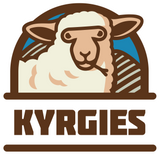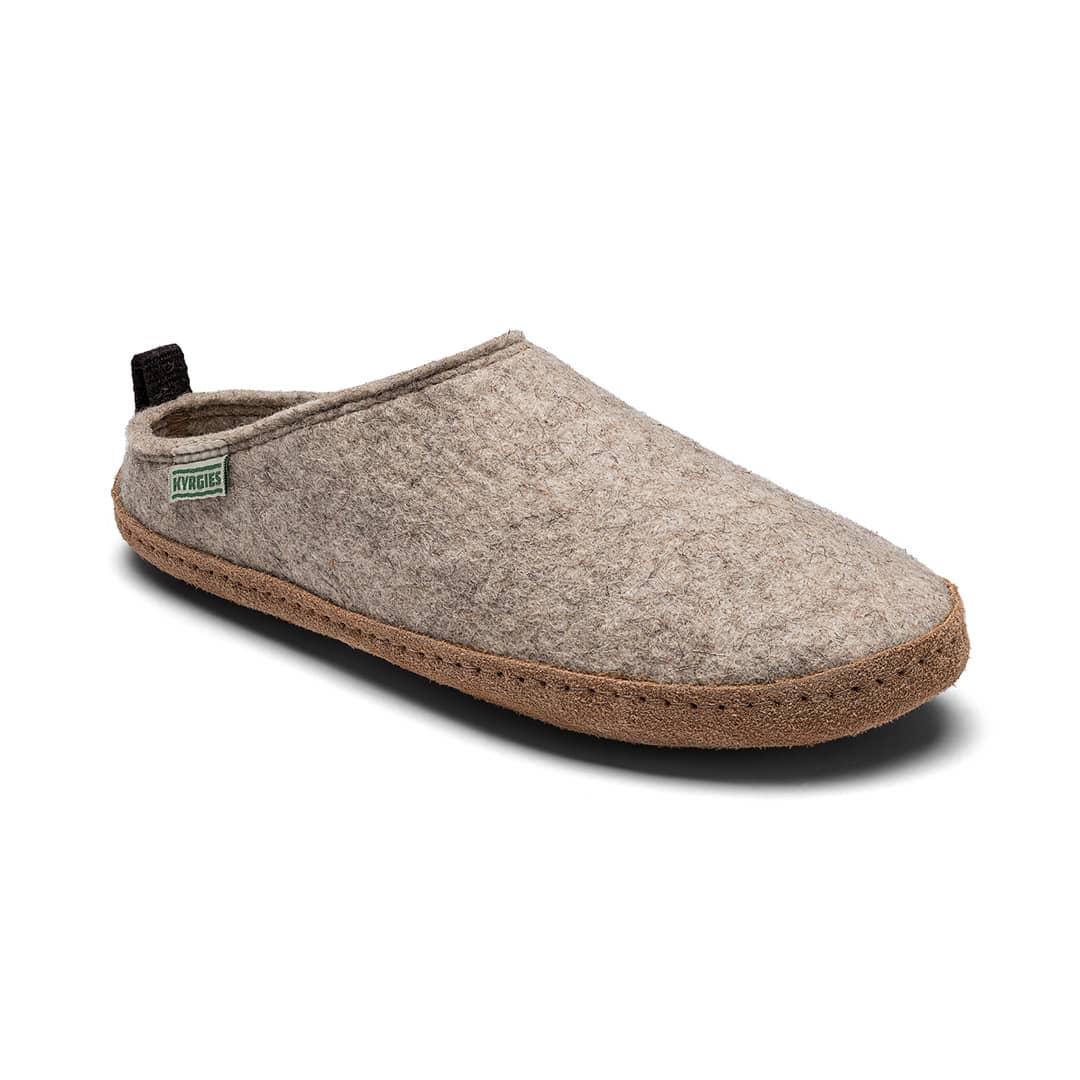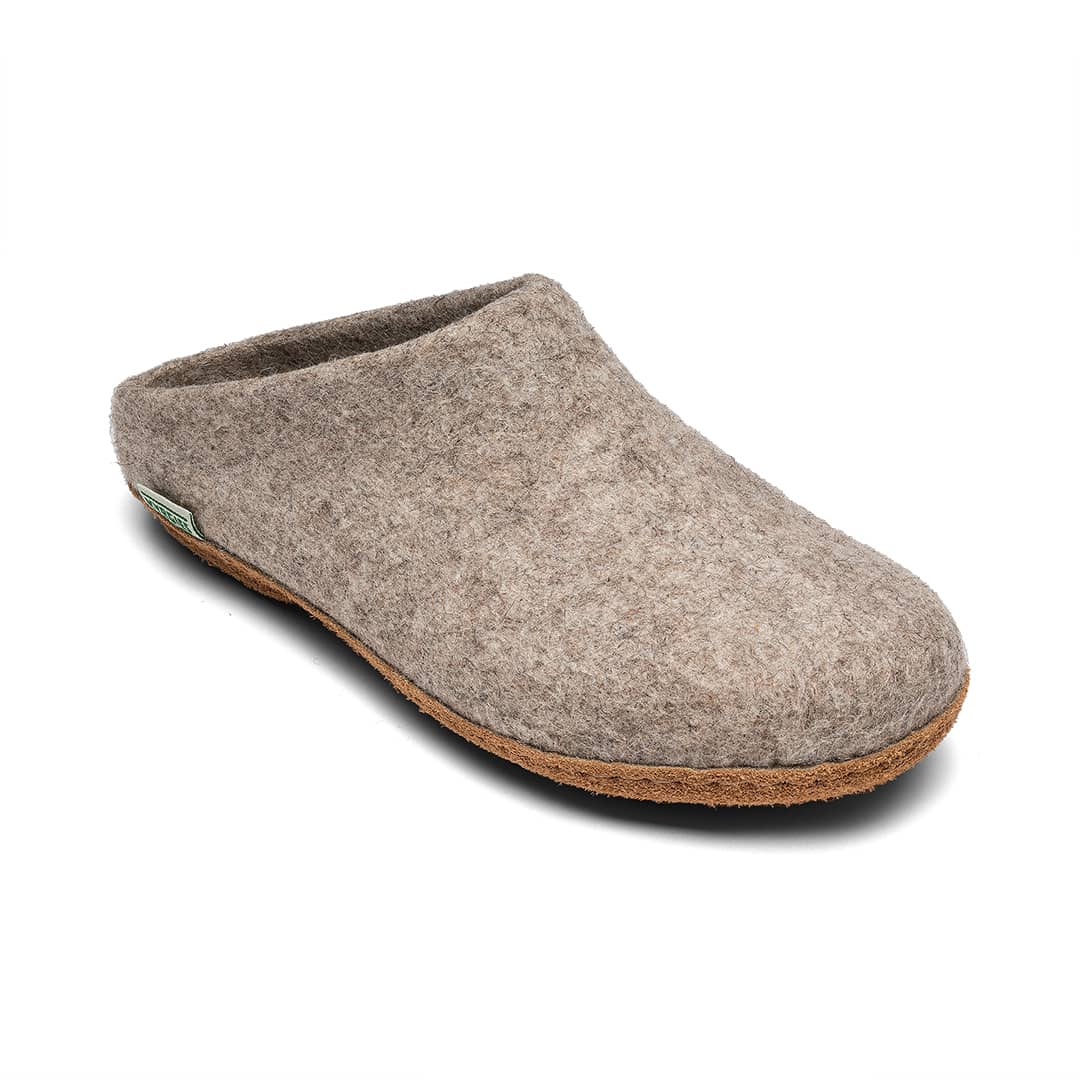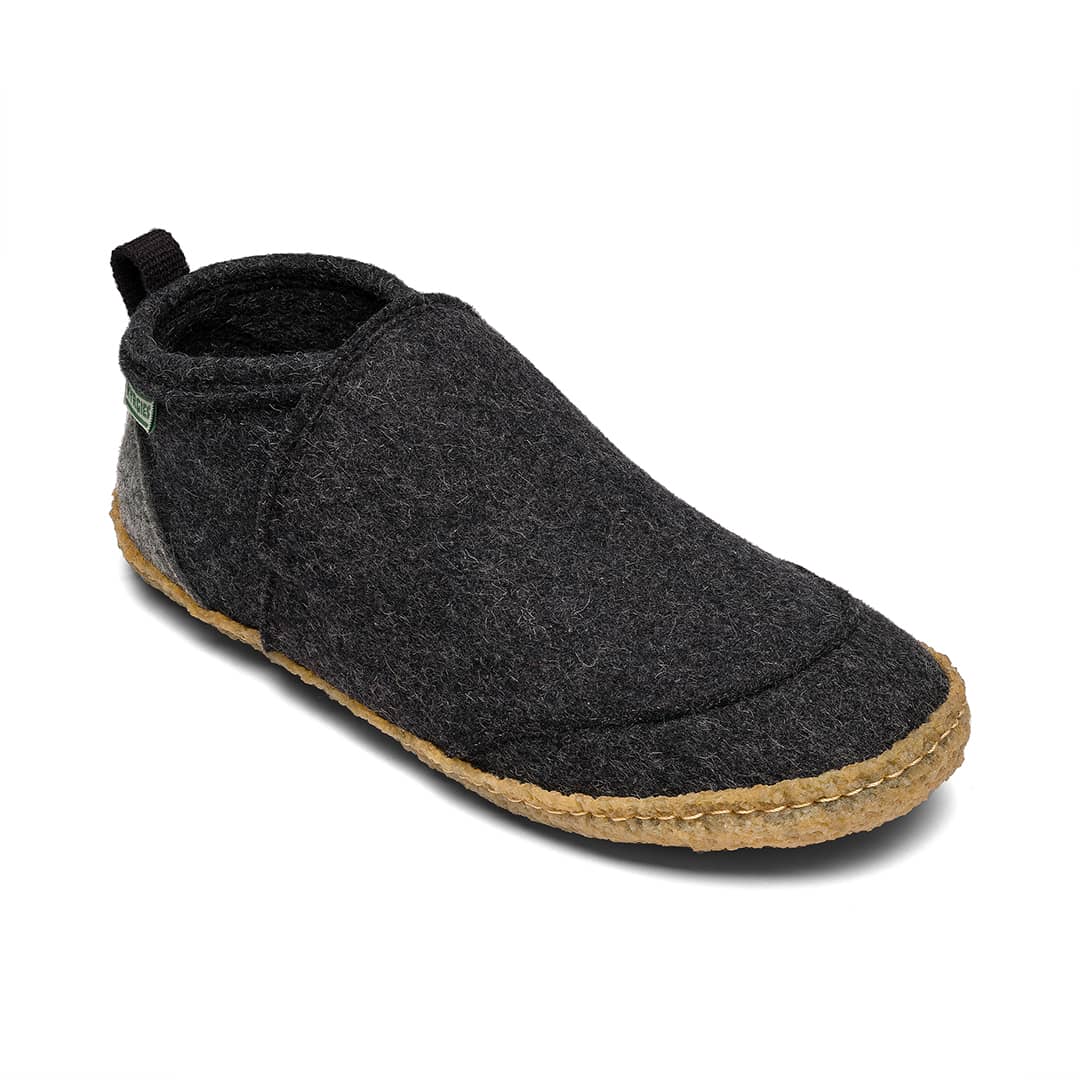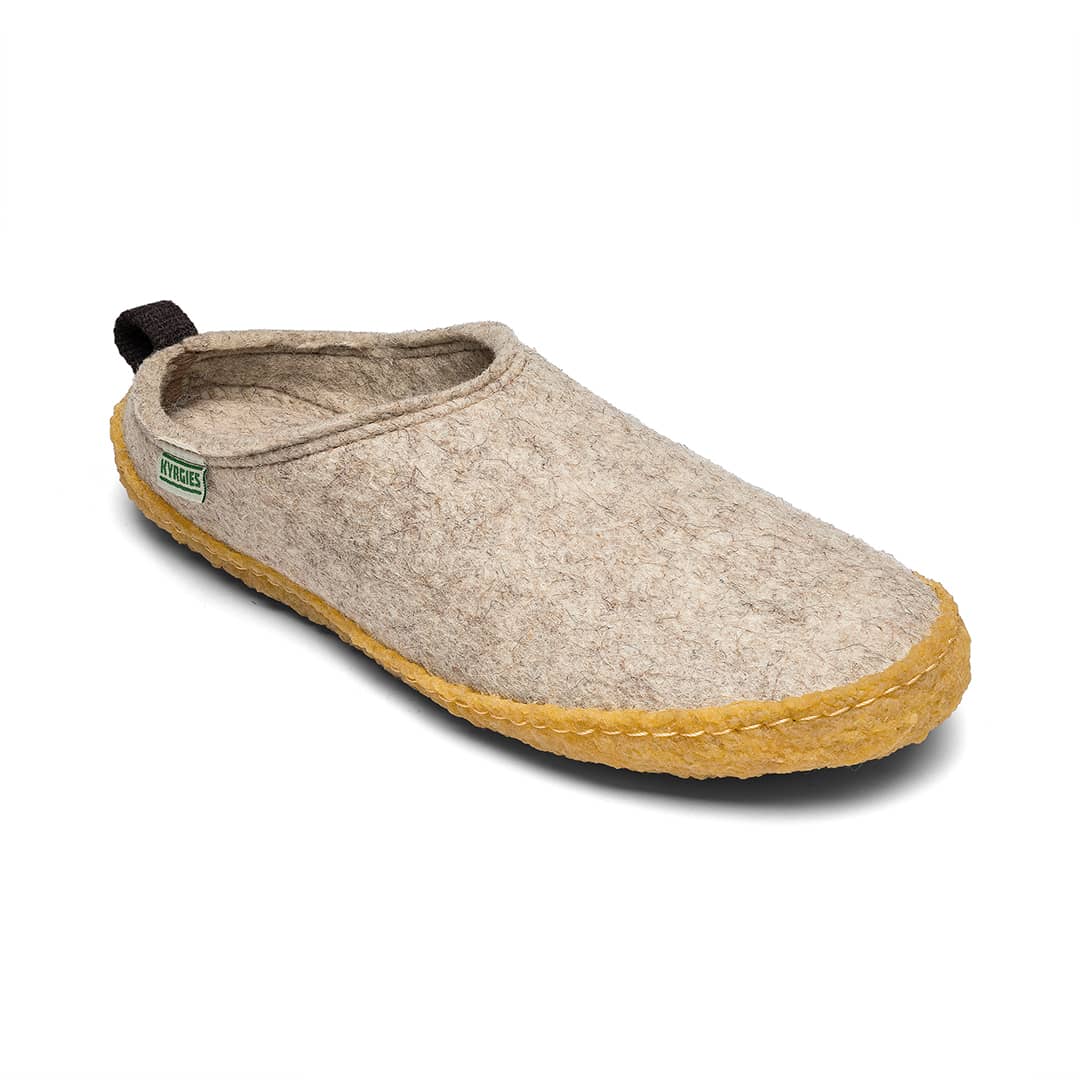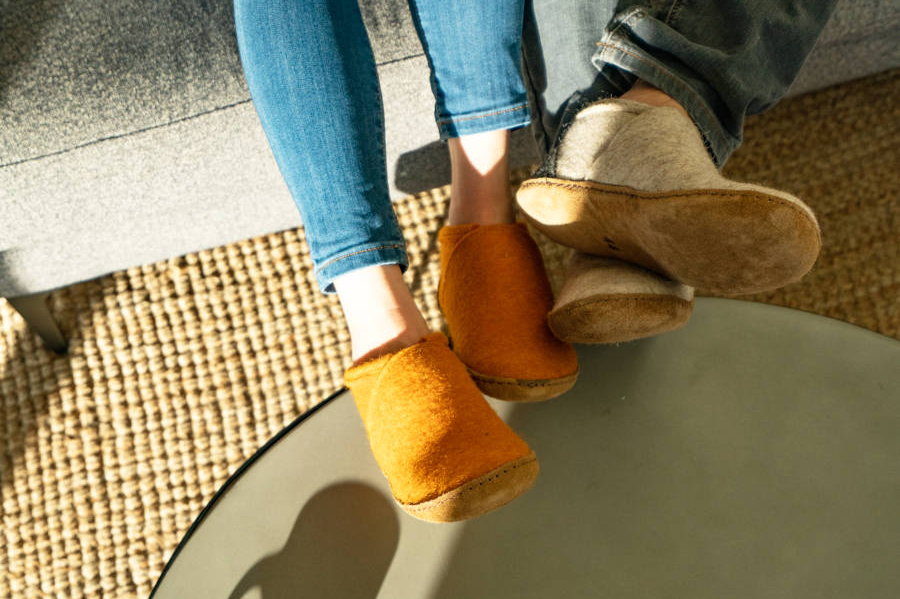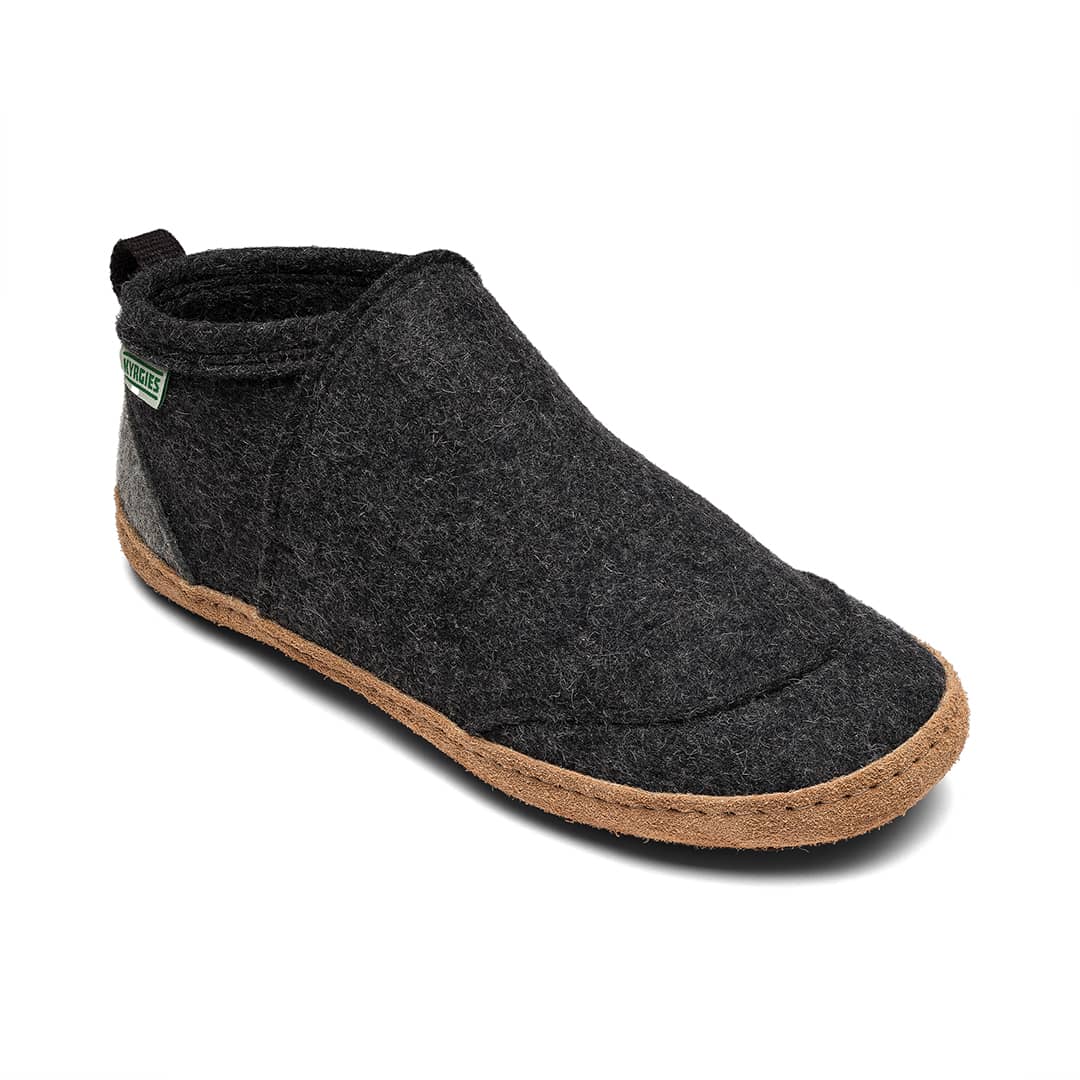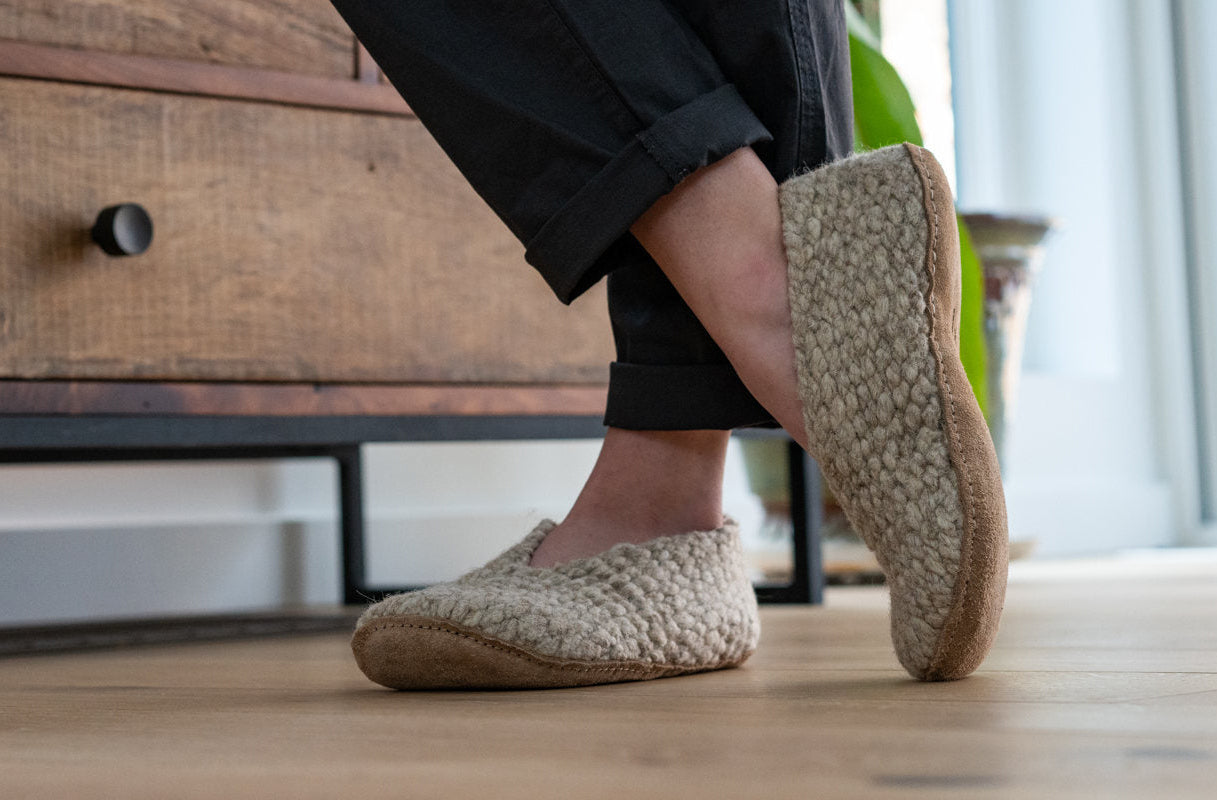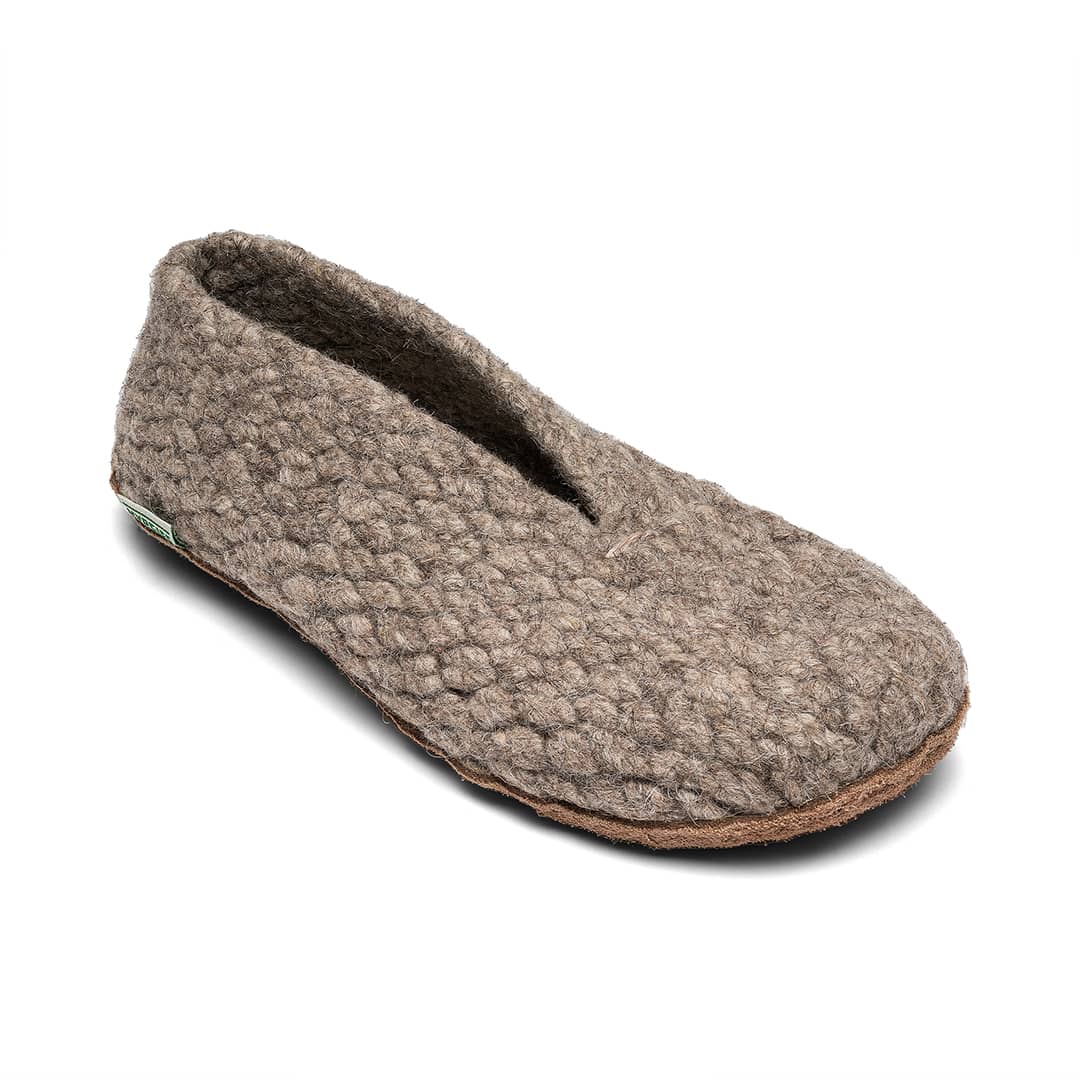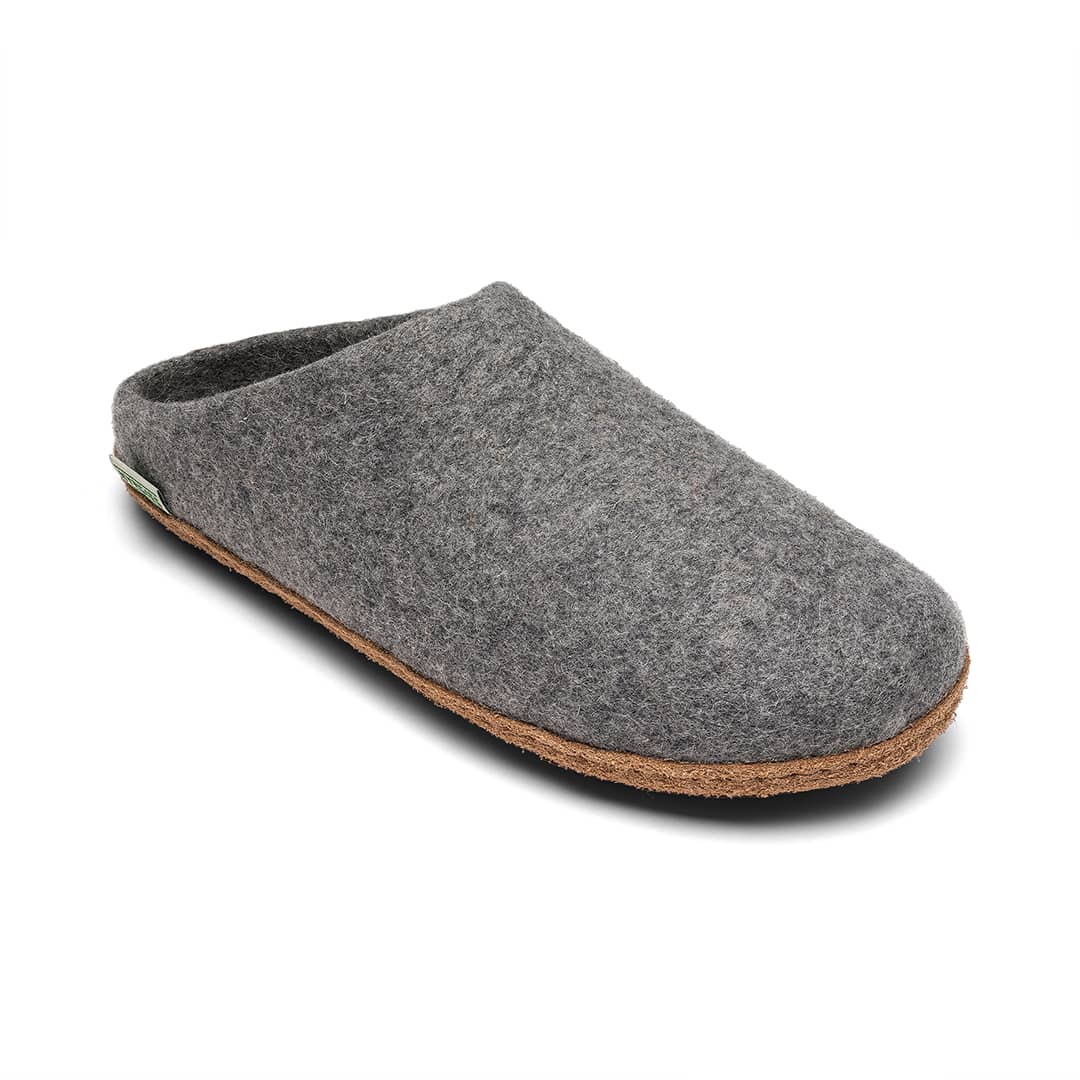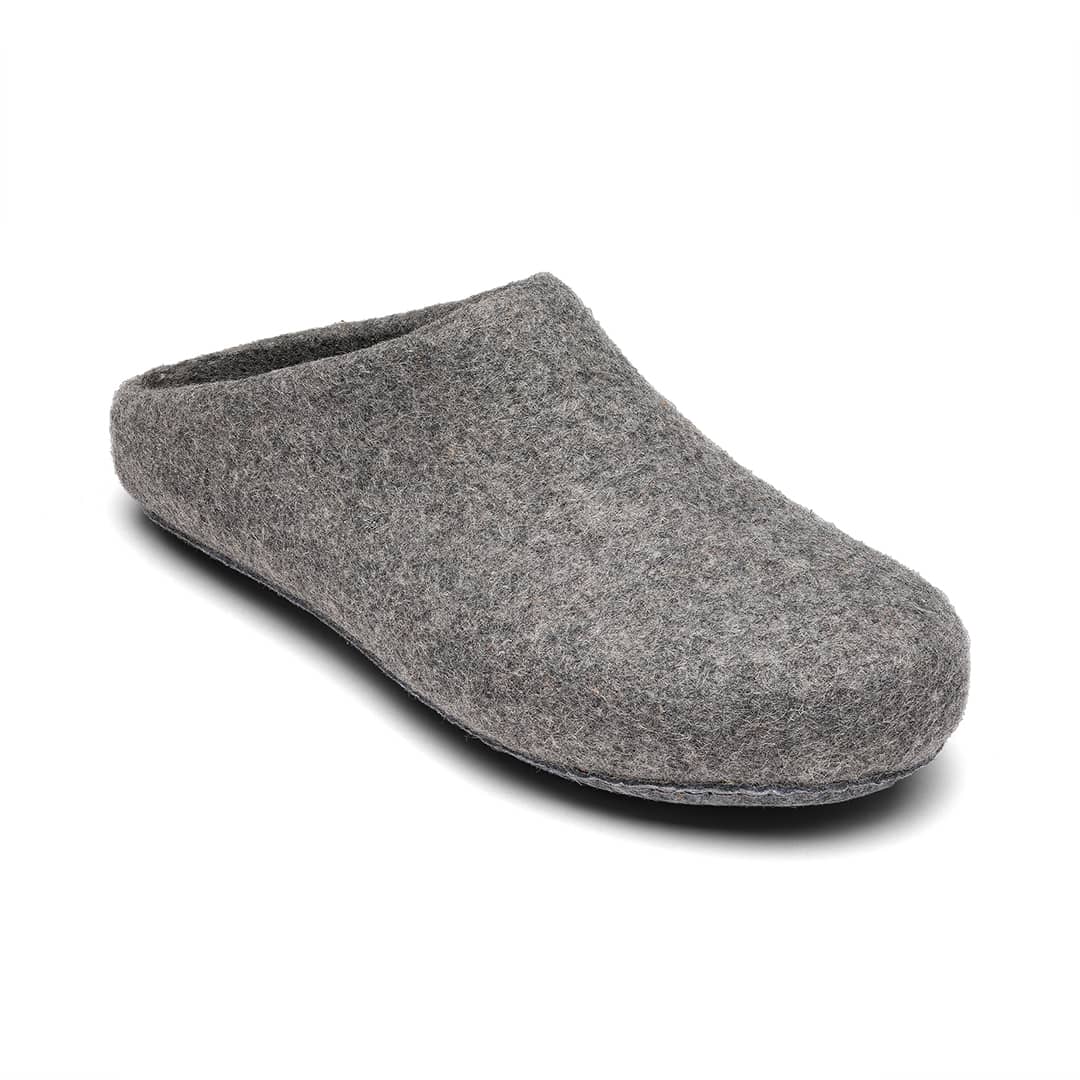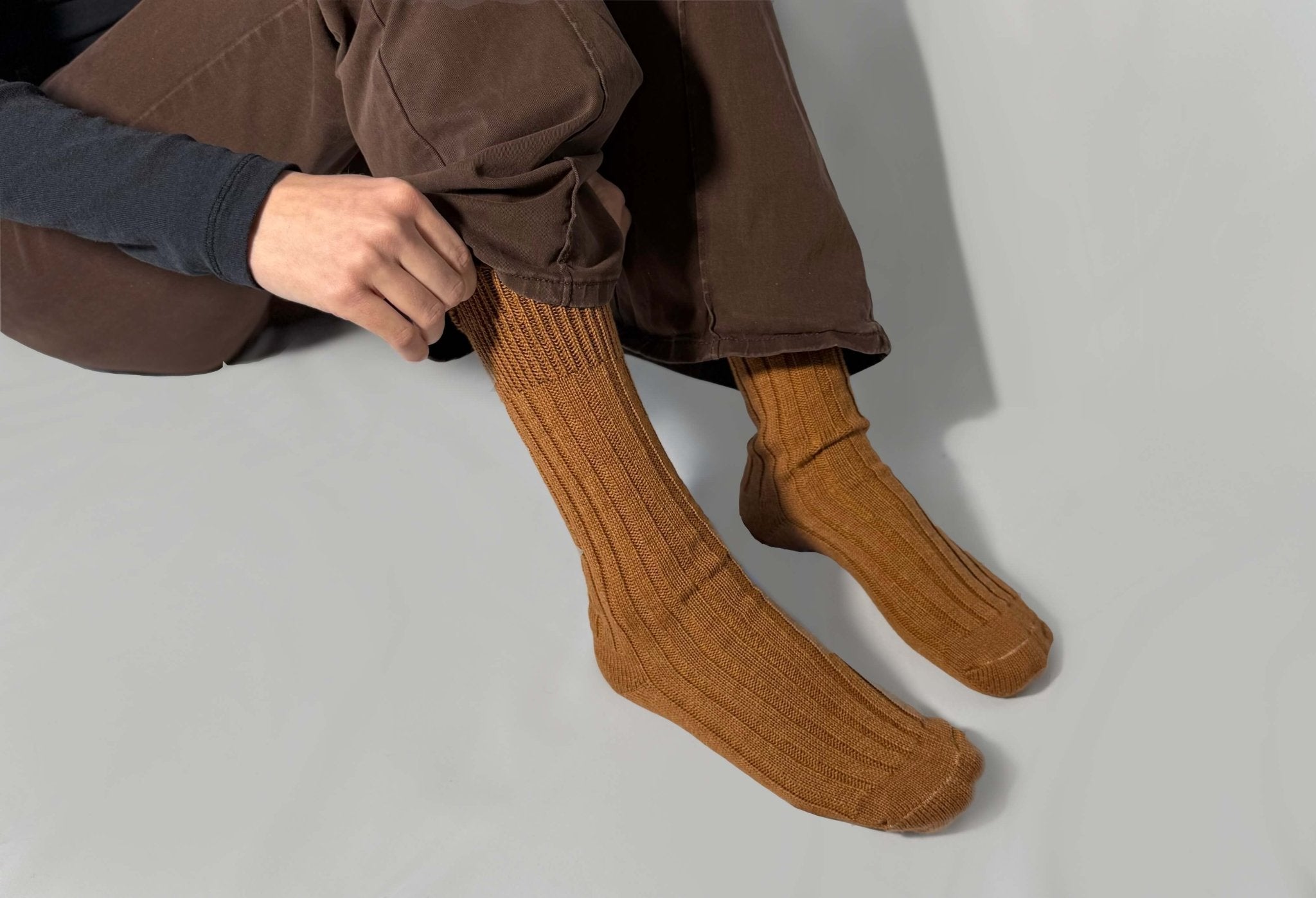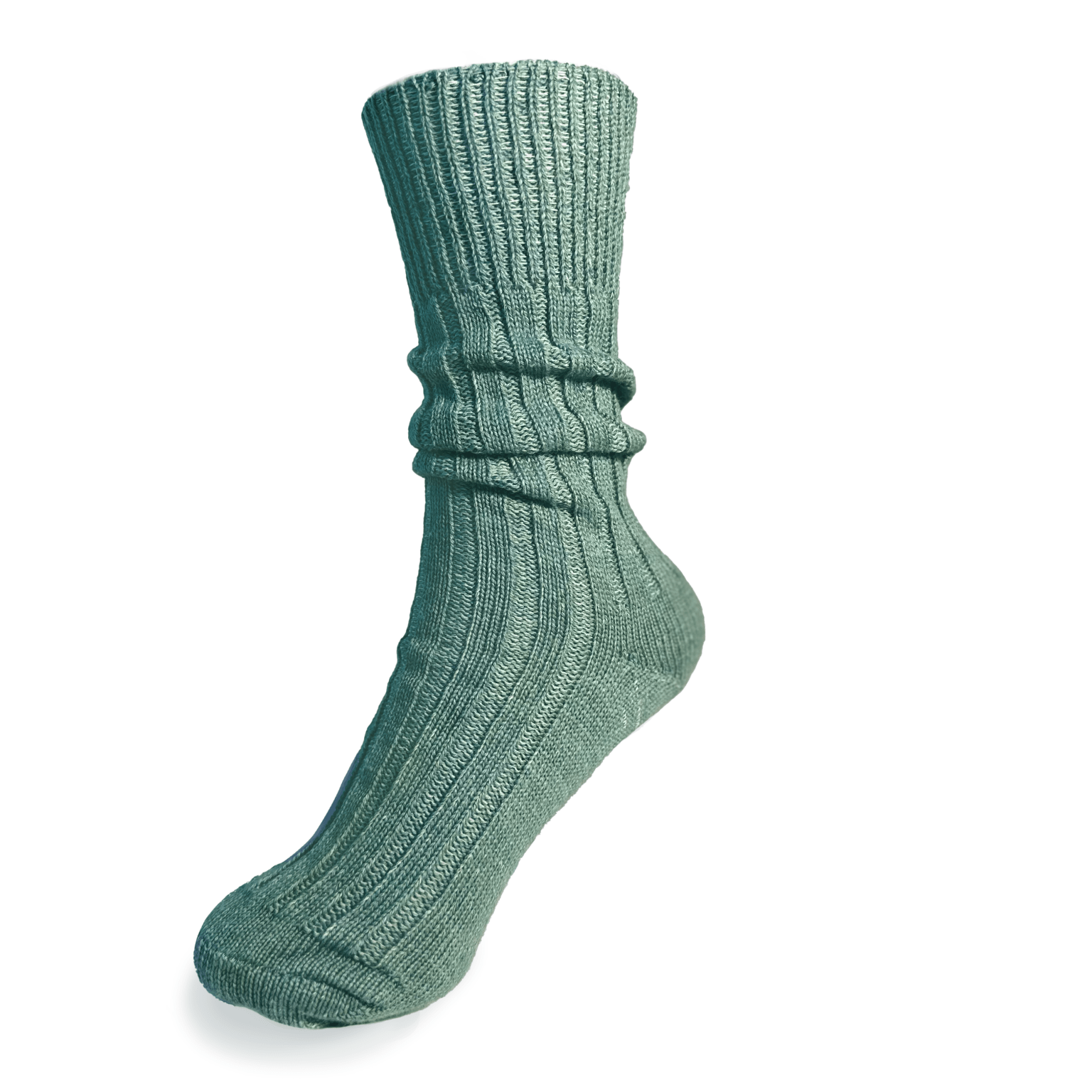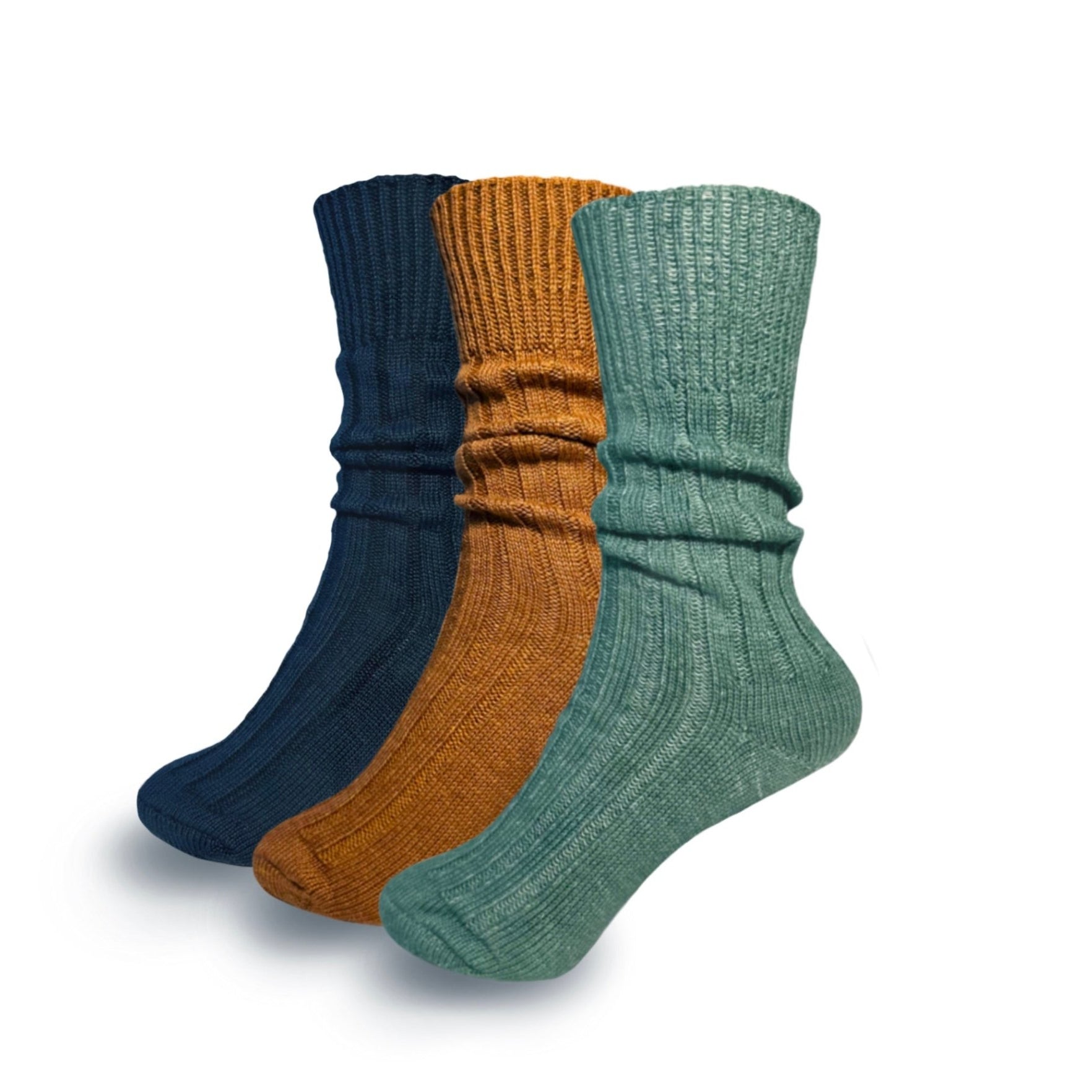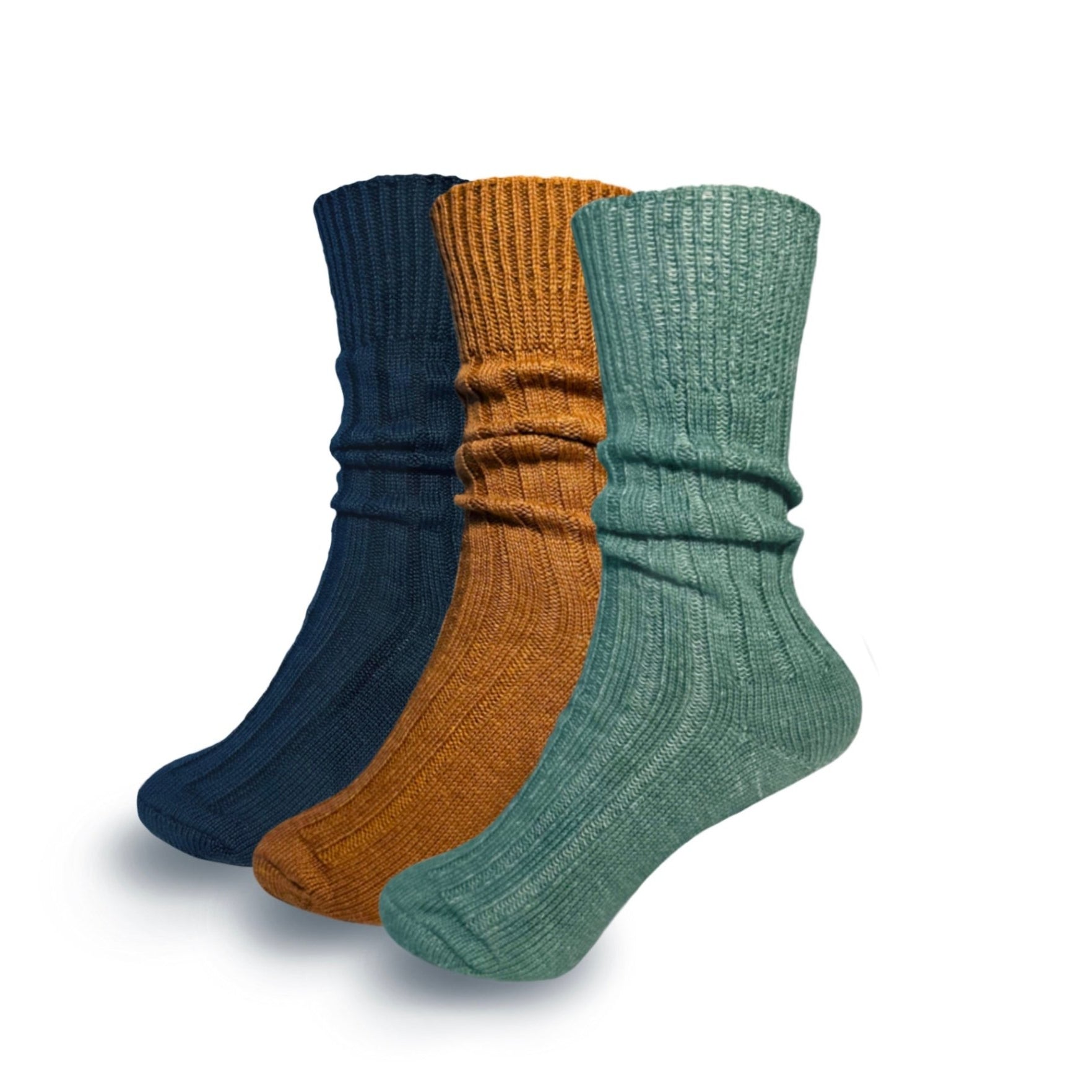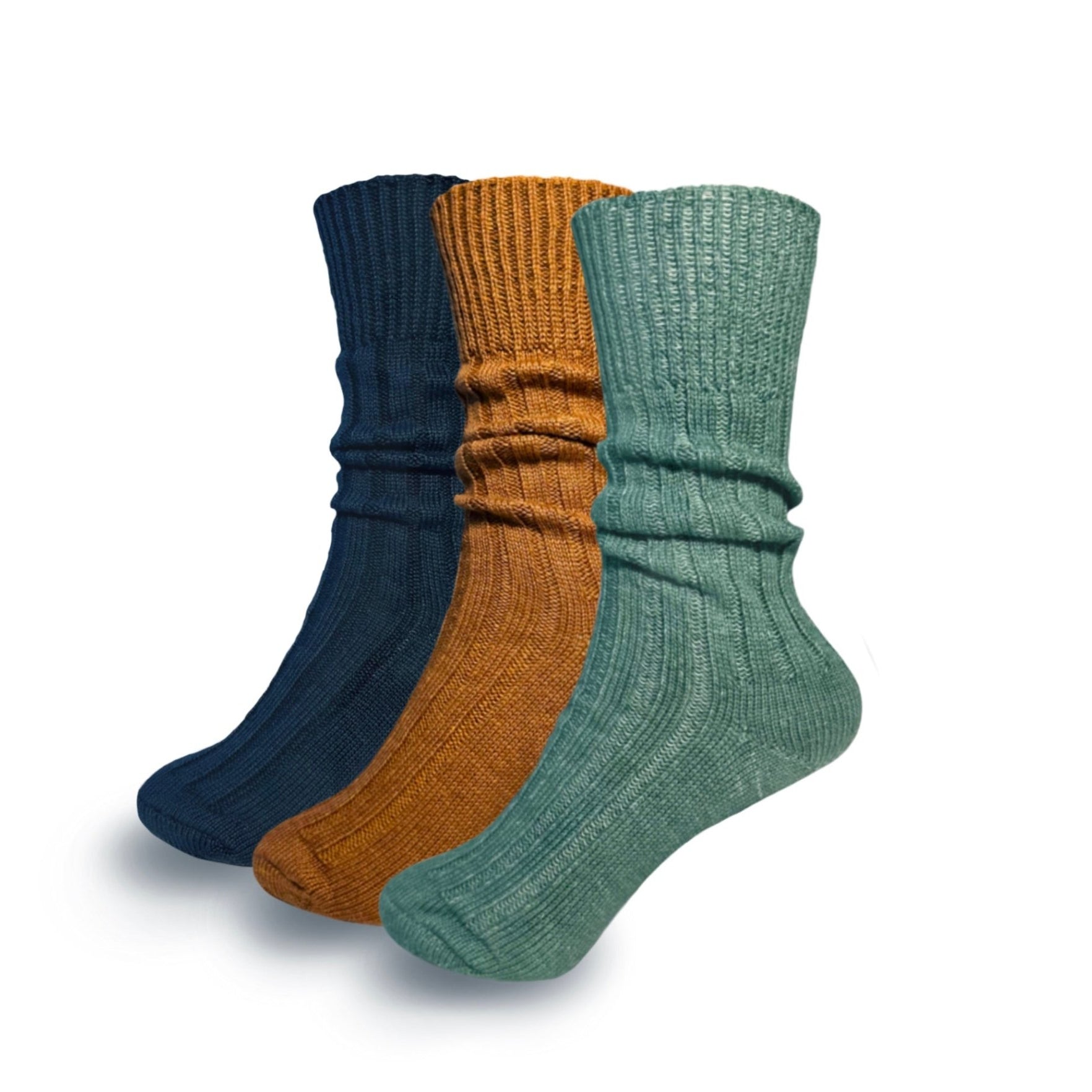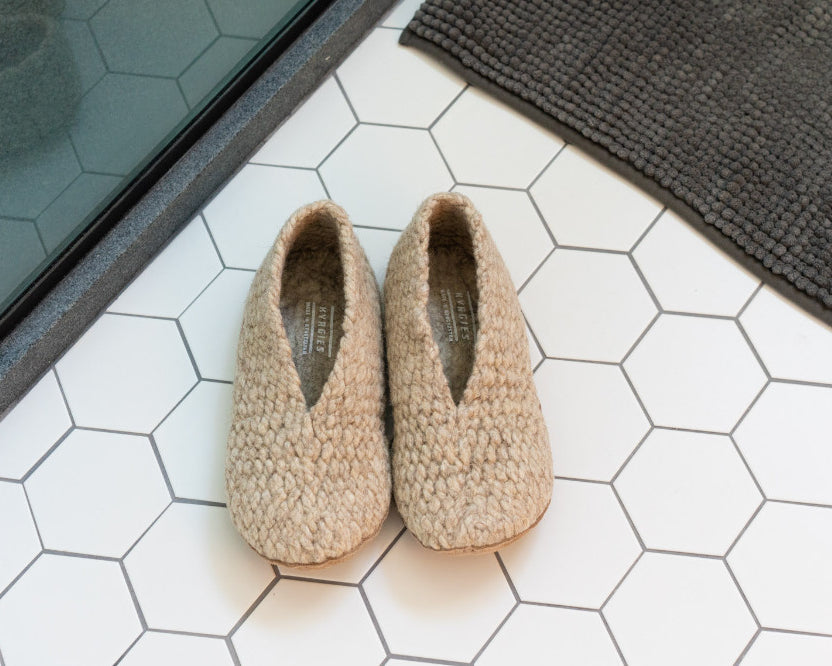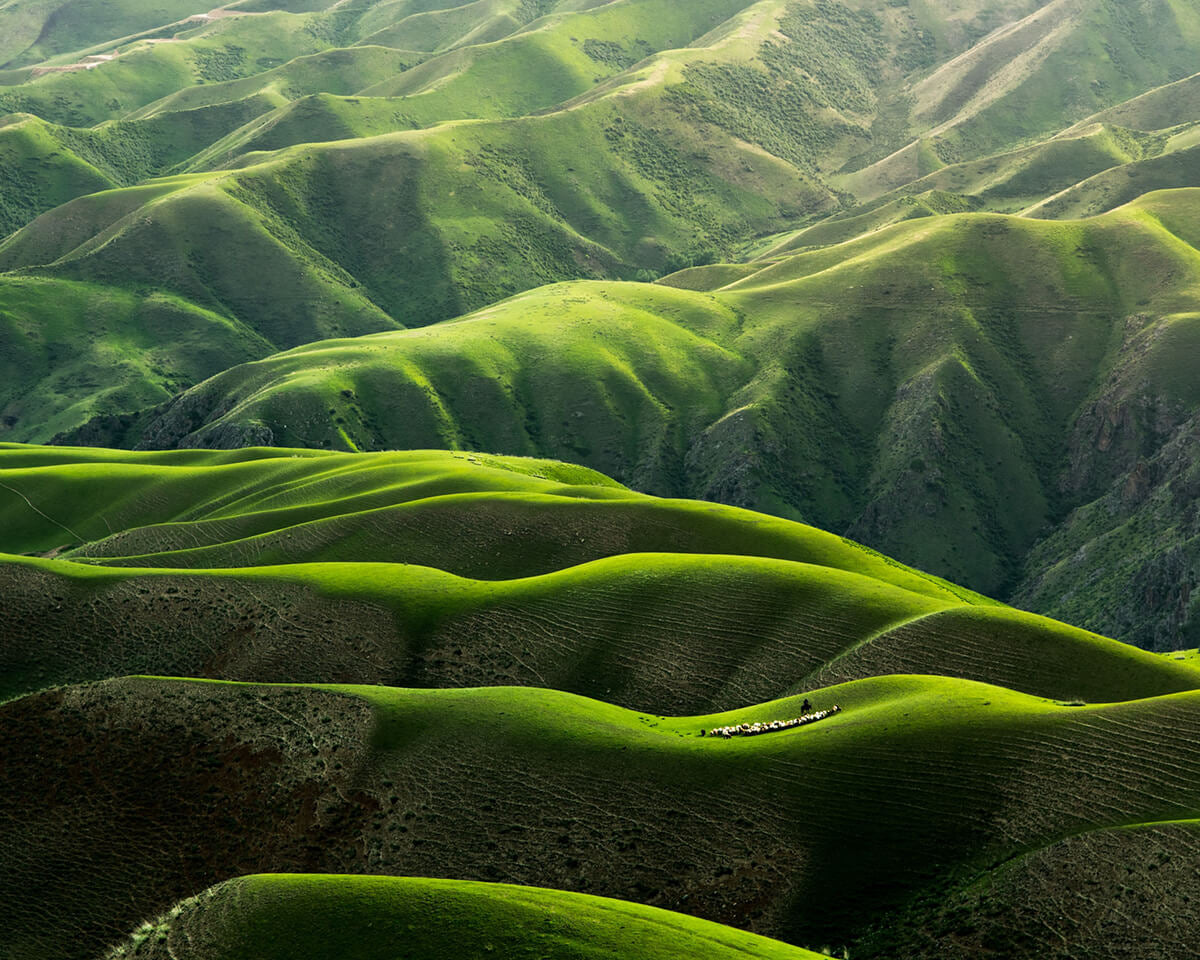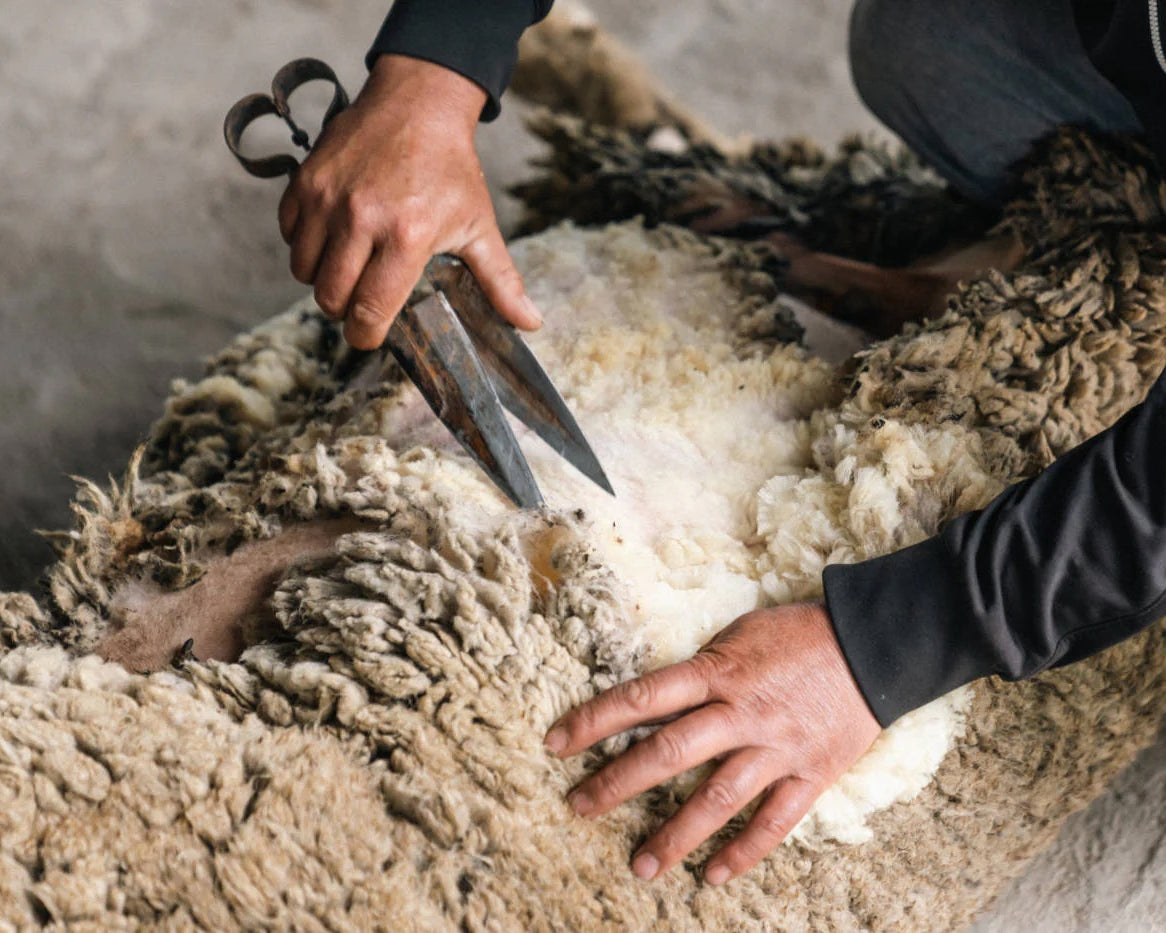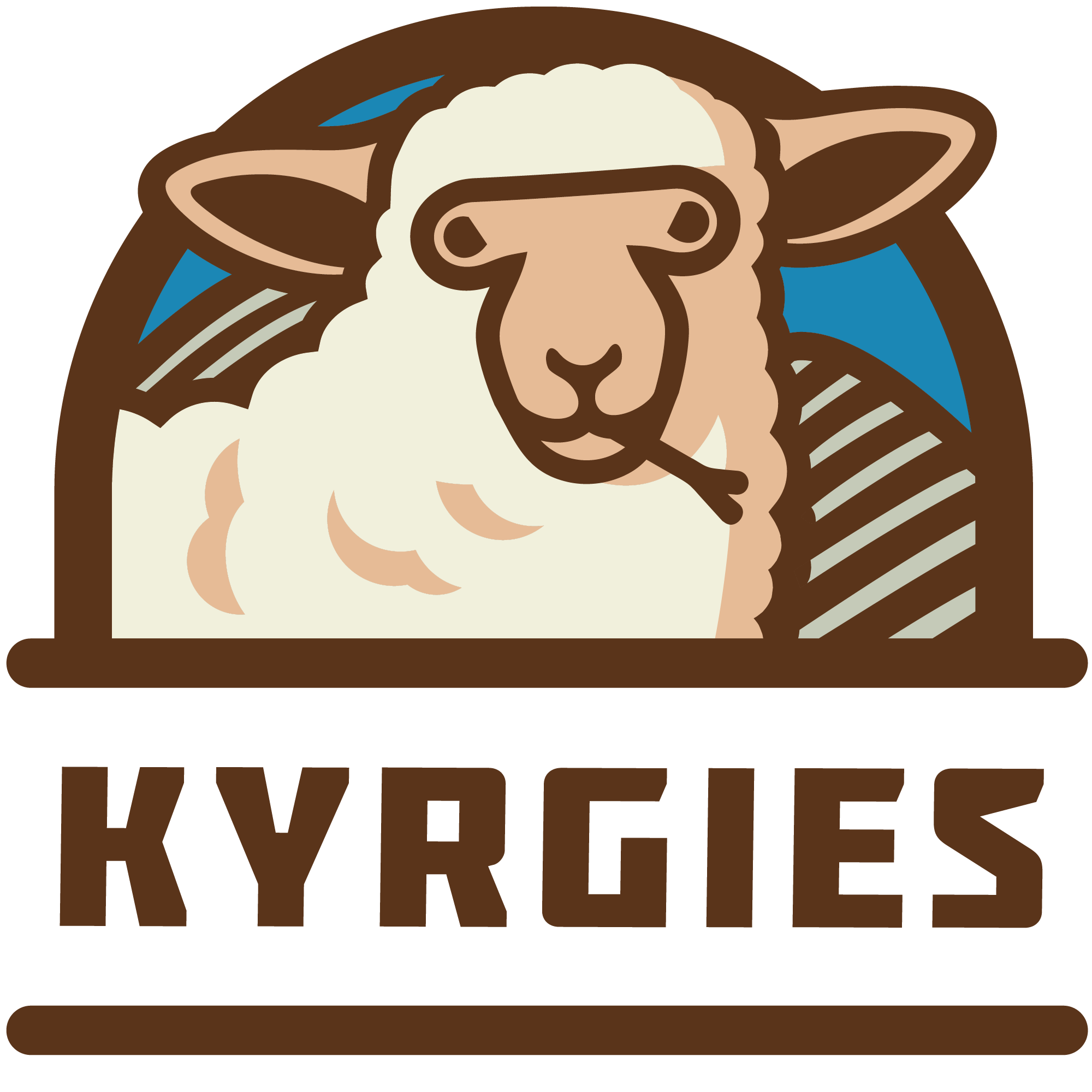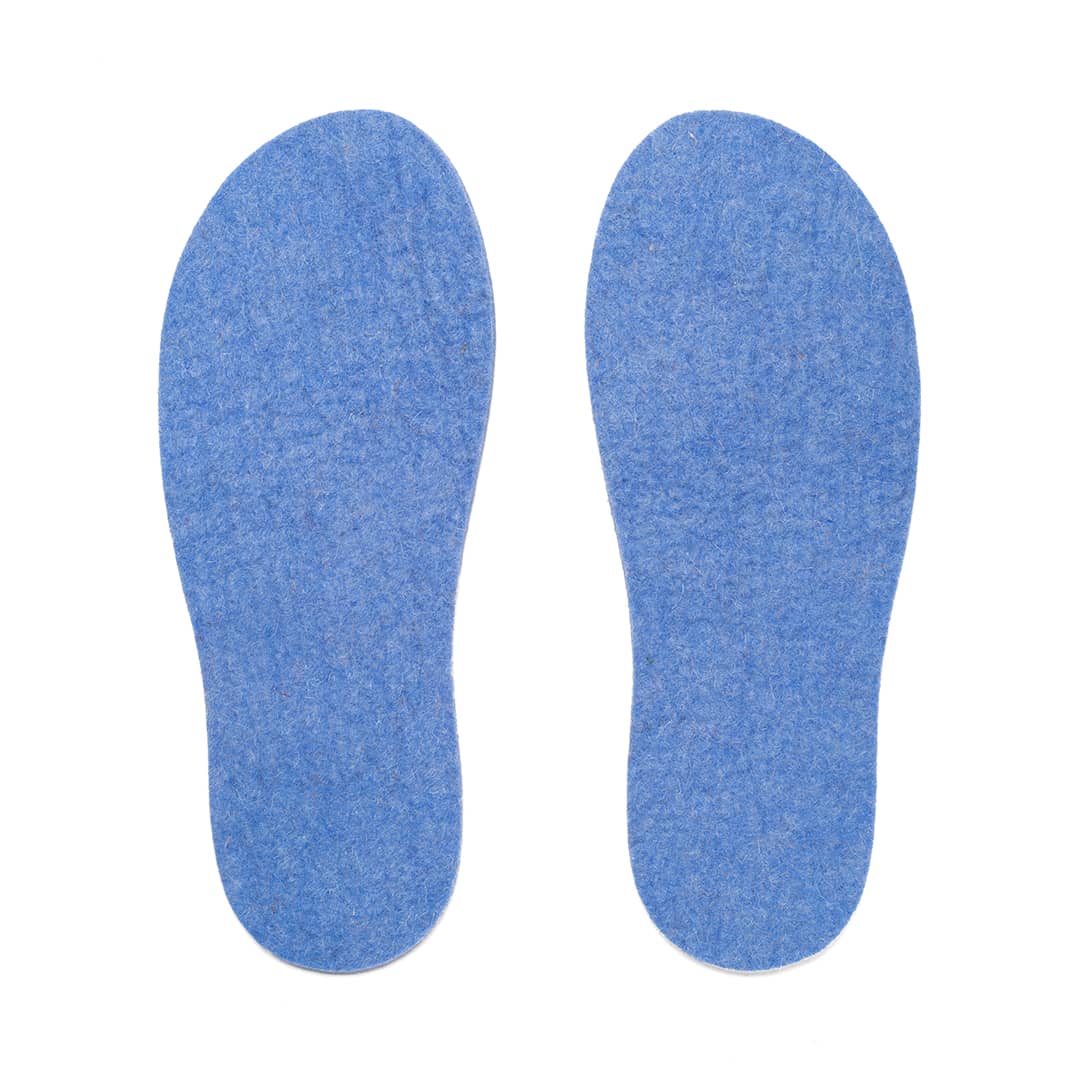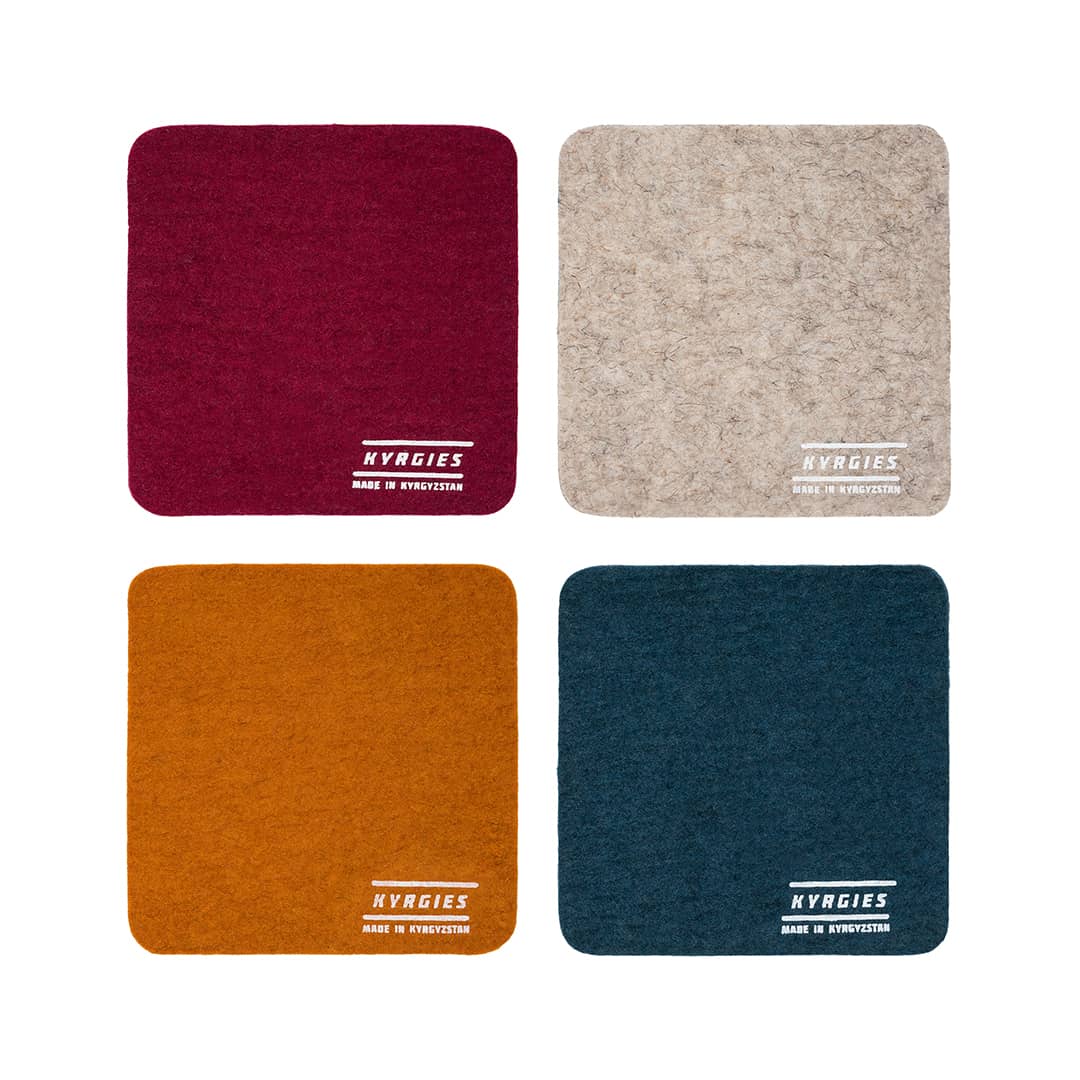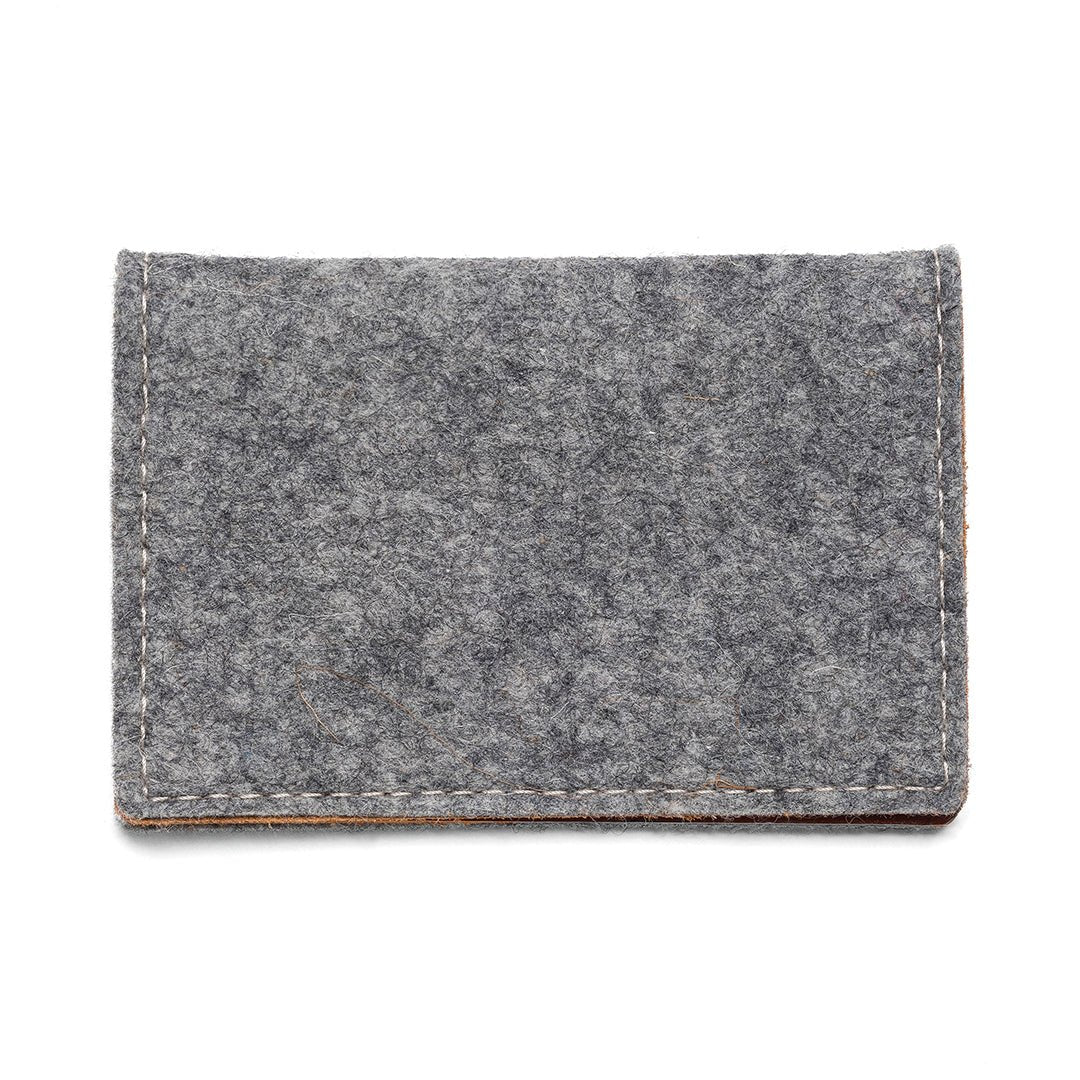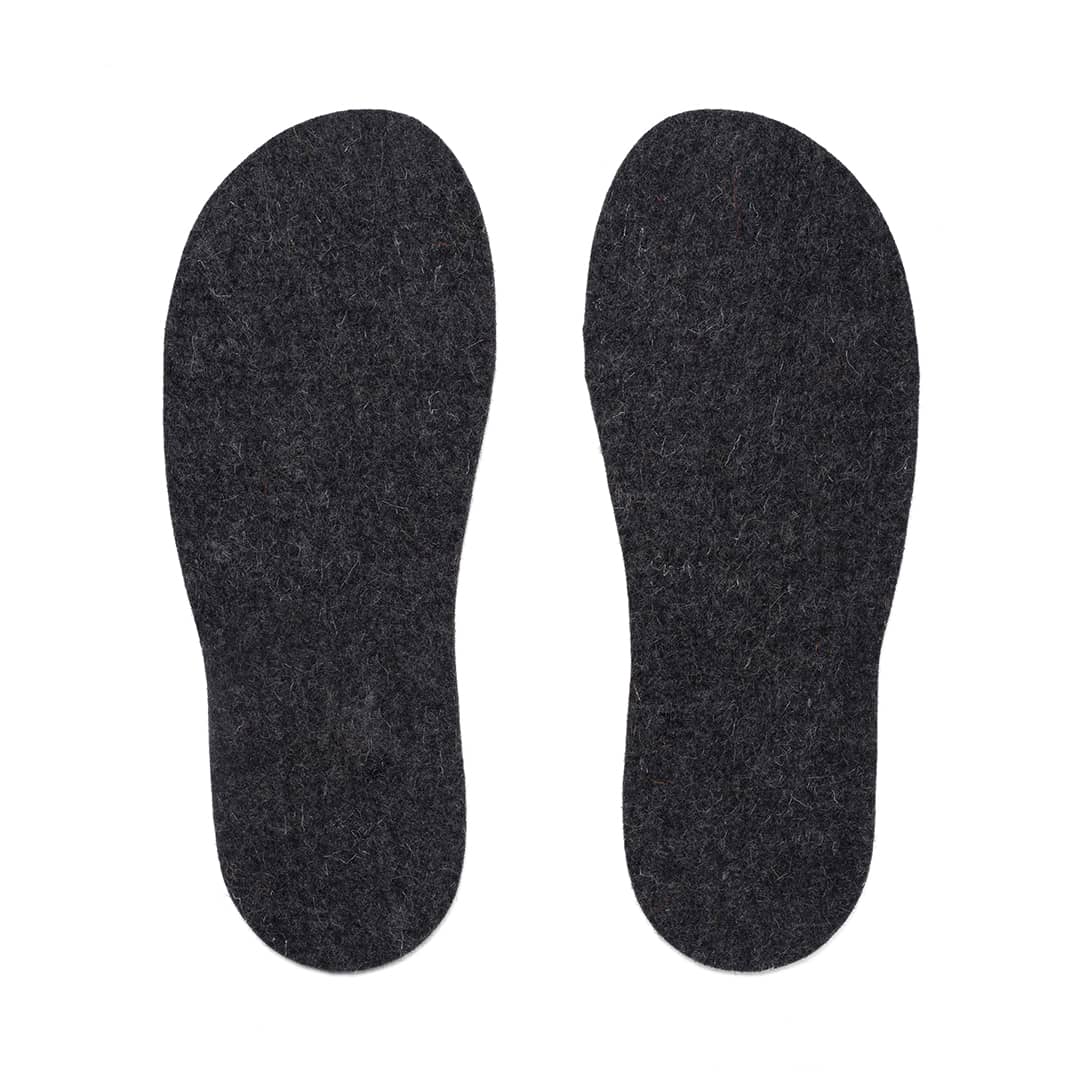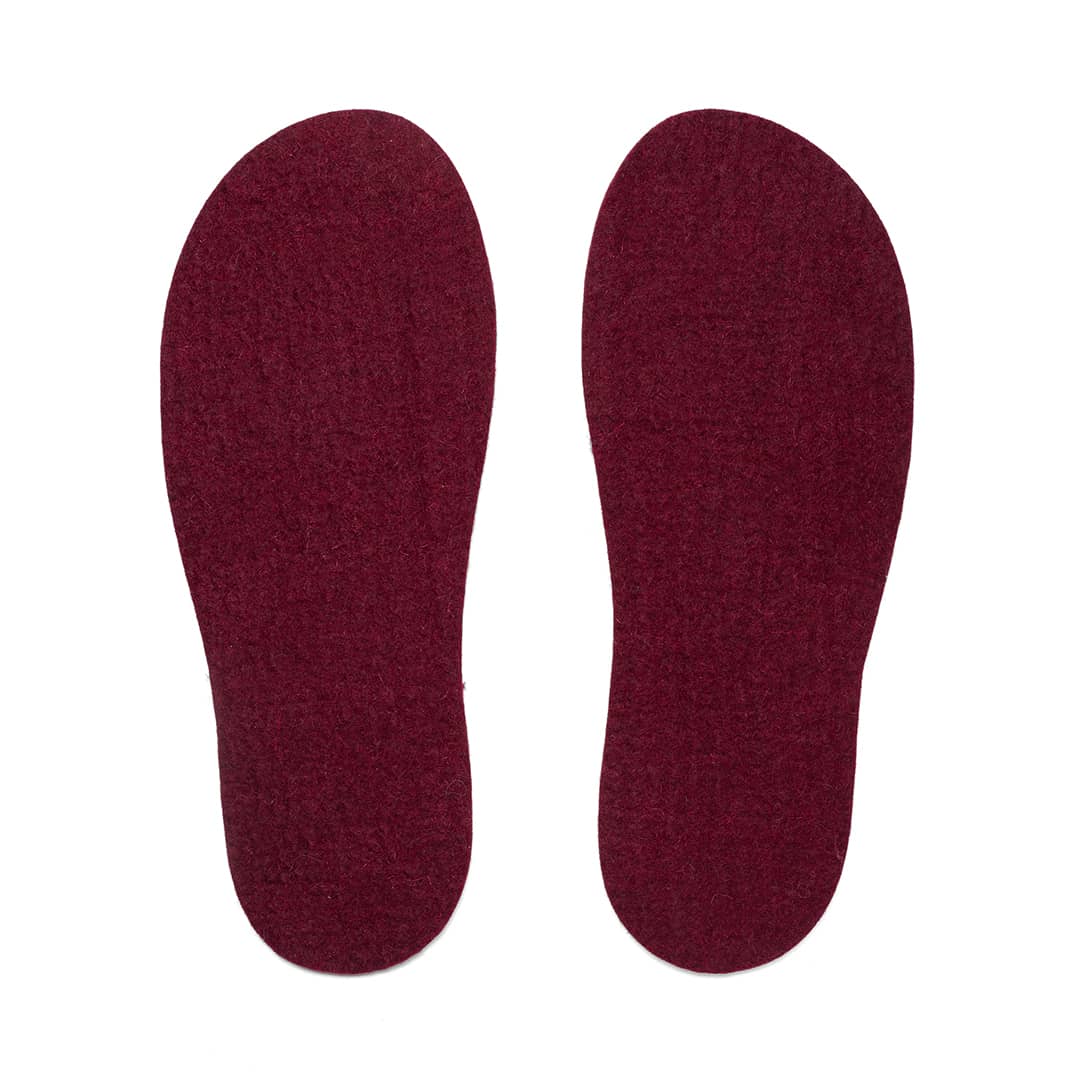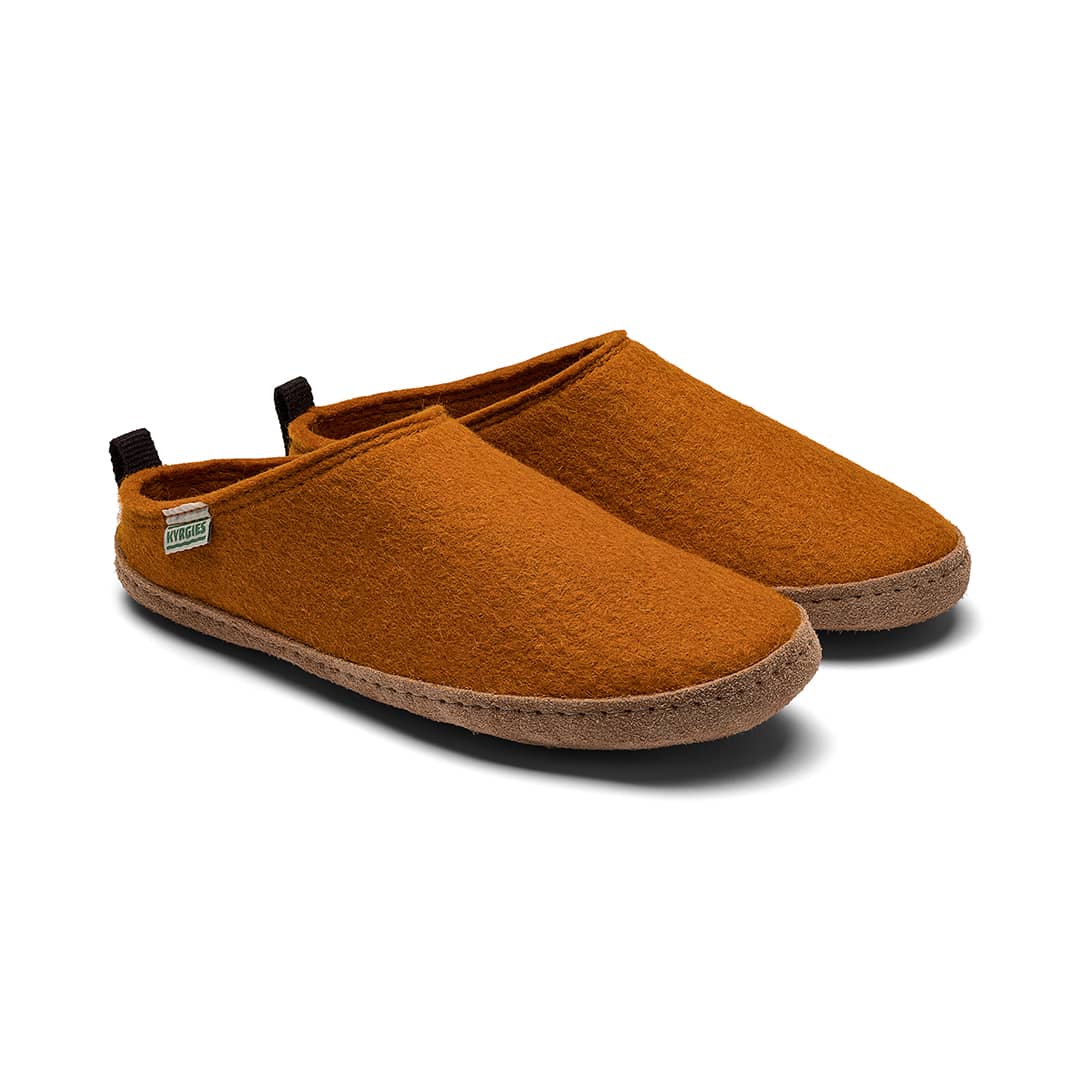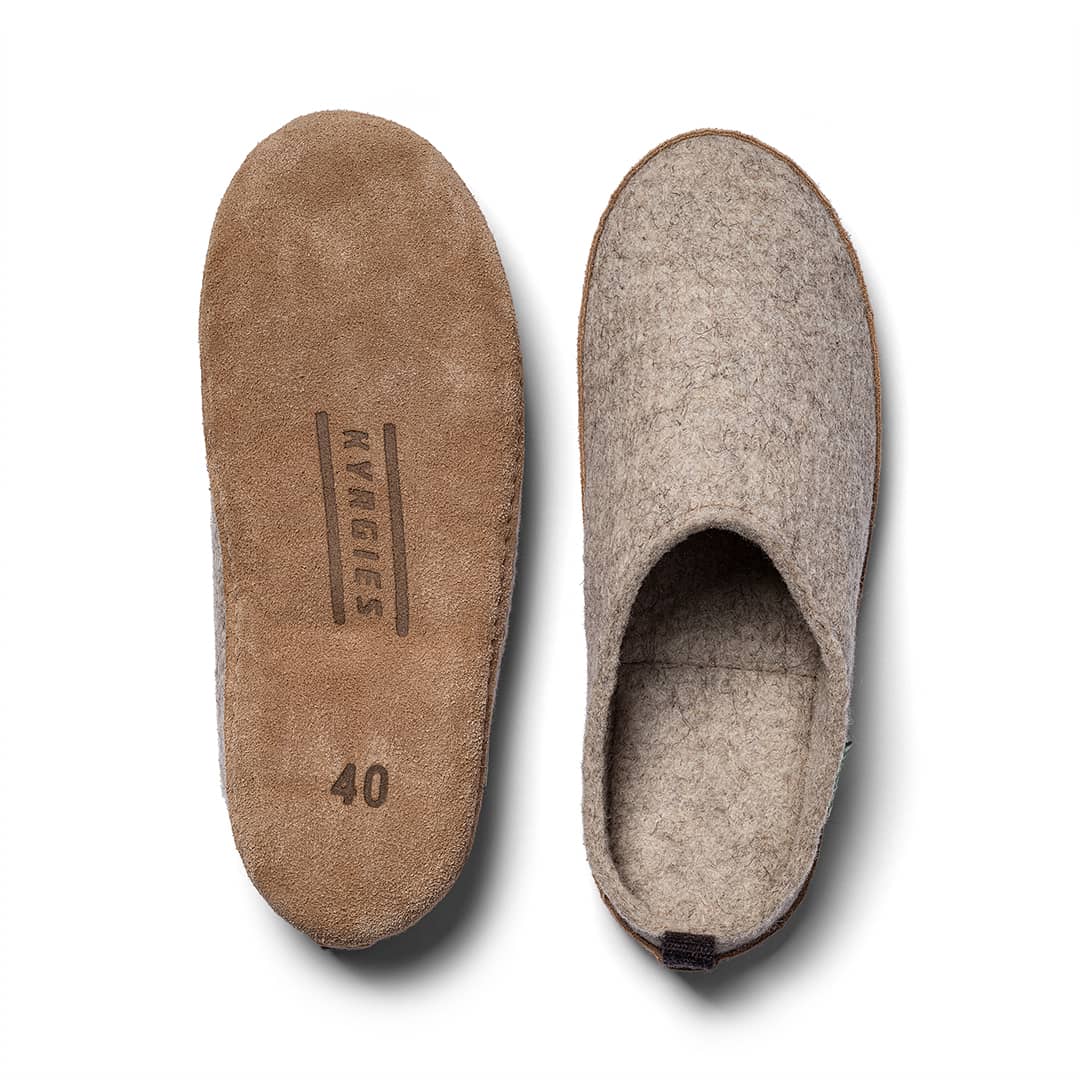
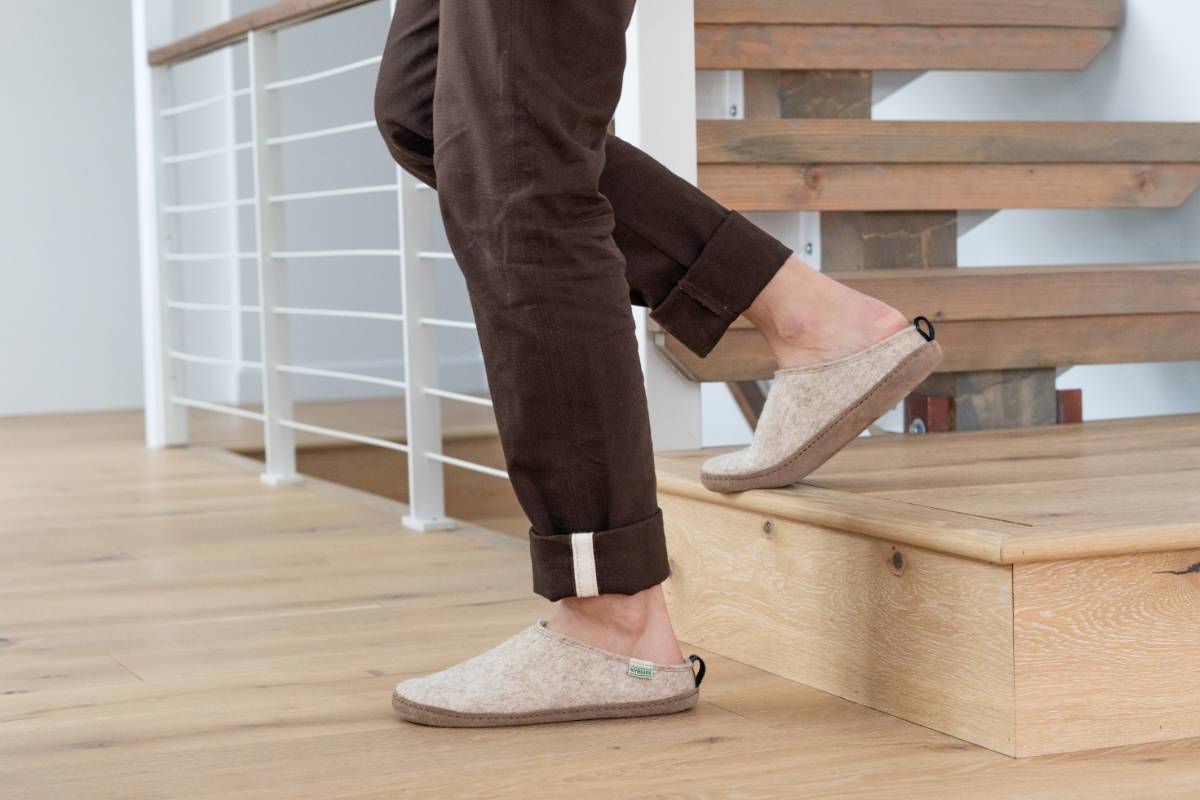
Vegetable Tanned Leather
Our vegetable-tanned leather is treated using natural plant extracts instead of the harsh chemicals found in conventional tanning. This eco-friendly process reduces pollution and minimizes environmental impact while preserving the leather’s natural durability. Not only is it better for the planet, but it also develops a rich patina over time, aging beautifully and uniquely with wear.
Found In:
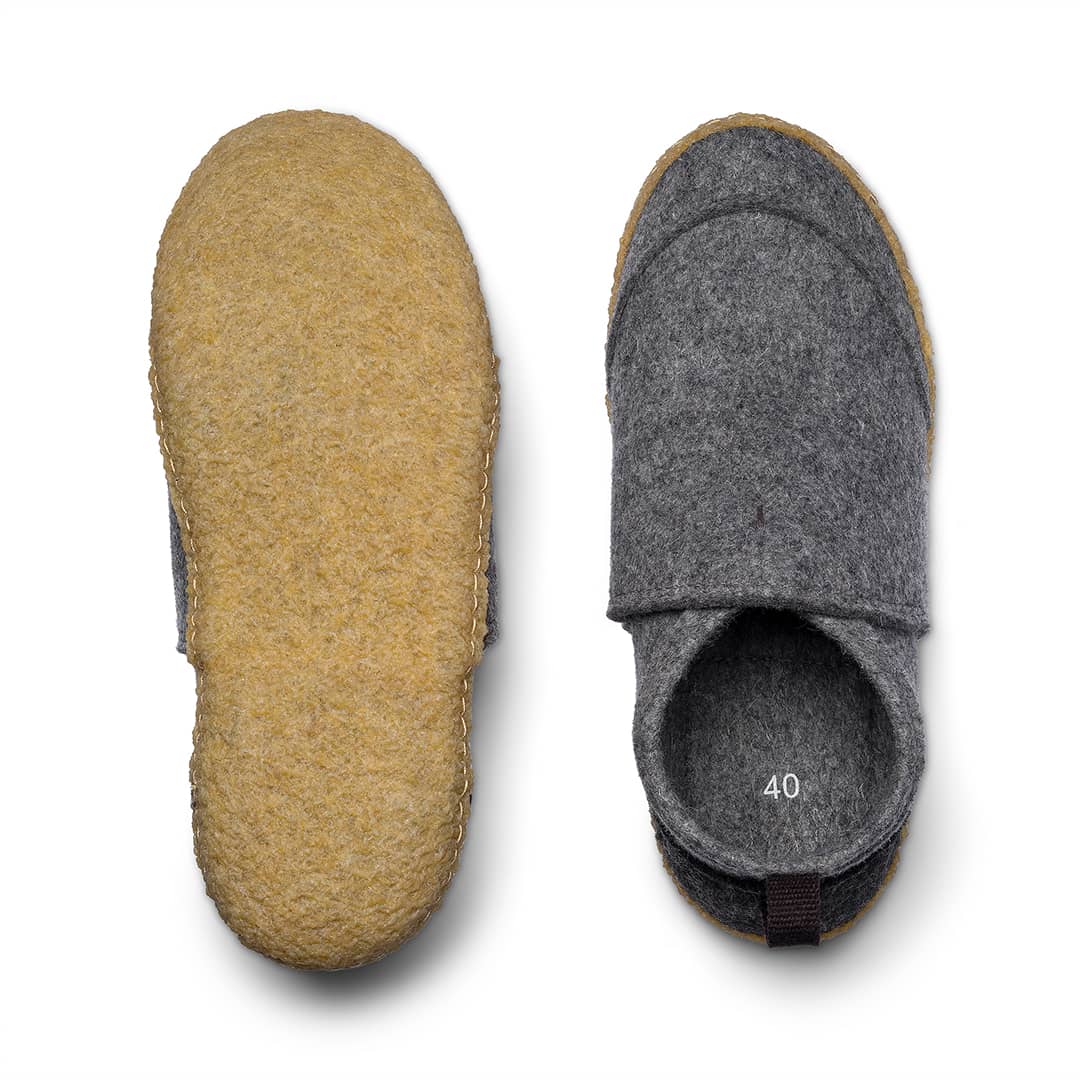

Rubber Soles
Our crepe-style soles are made from vulcanized natural rubber, sourced sustainably from rubber trees. Vulcanization is a process that strengthens the rubber by heating it with natural additives, enhancing its durability and elasticity without relying on synthetic materials. Unlike petroleum-based soles, our natural rubber is biodegradable and harvested without harming the trees, allowing them to continue absorbing carbon dioxide and supporting biodiversity. By choosing this renewable material, we reduce reliance on fossil fuels and minimize environmental impact while ensuring long-lasting performance.
Found In:

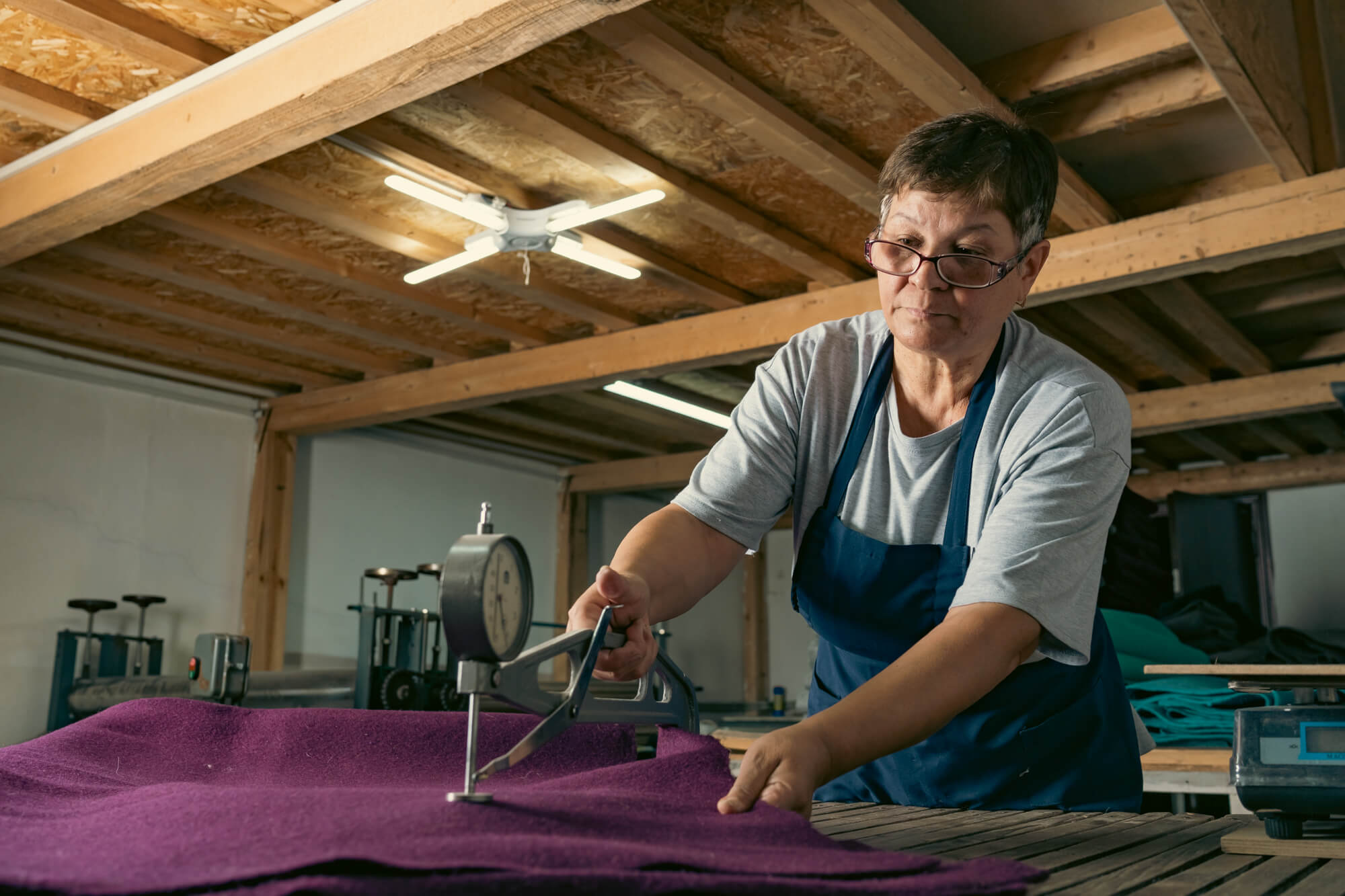
Cut and Sewn Felt
Our cut and sewn felt is a more pliable and lightweight alternative to traditional rolled felt, offering enhanced flexibility without compromising durability or warmth. By carefully cutting and stitching the material, we create a soft, adaptable fabric that provides a comfortable fit while maintaining the insulating properties of natural wool. Made from sustainably sourced wool, this felt is biodegradable, renewable, and crafted with minimal waste, ensuring both comfort and a lower environmental footprint.
Found In:
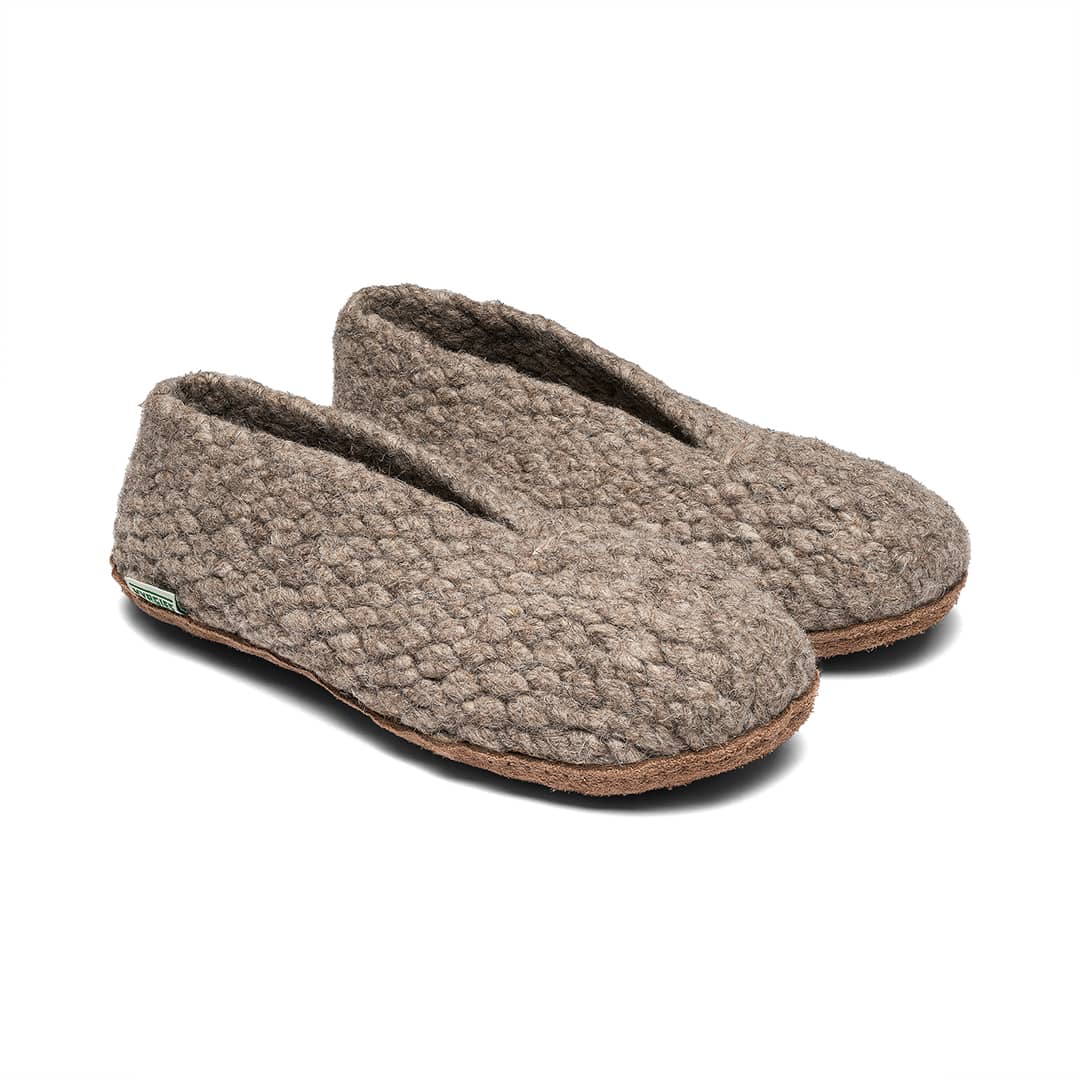
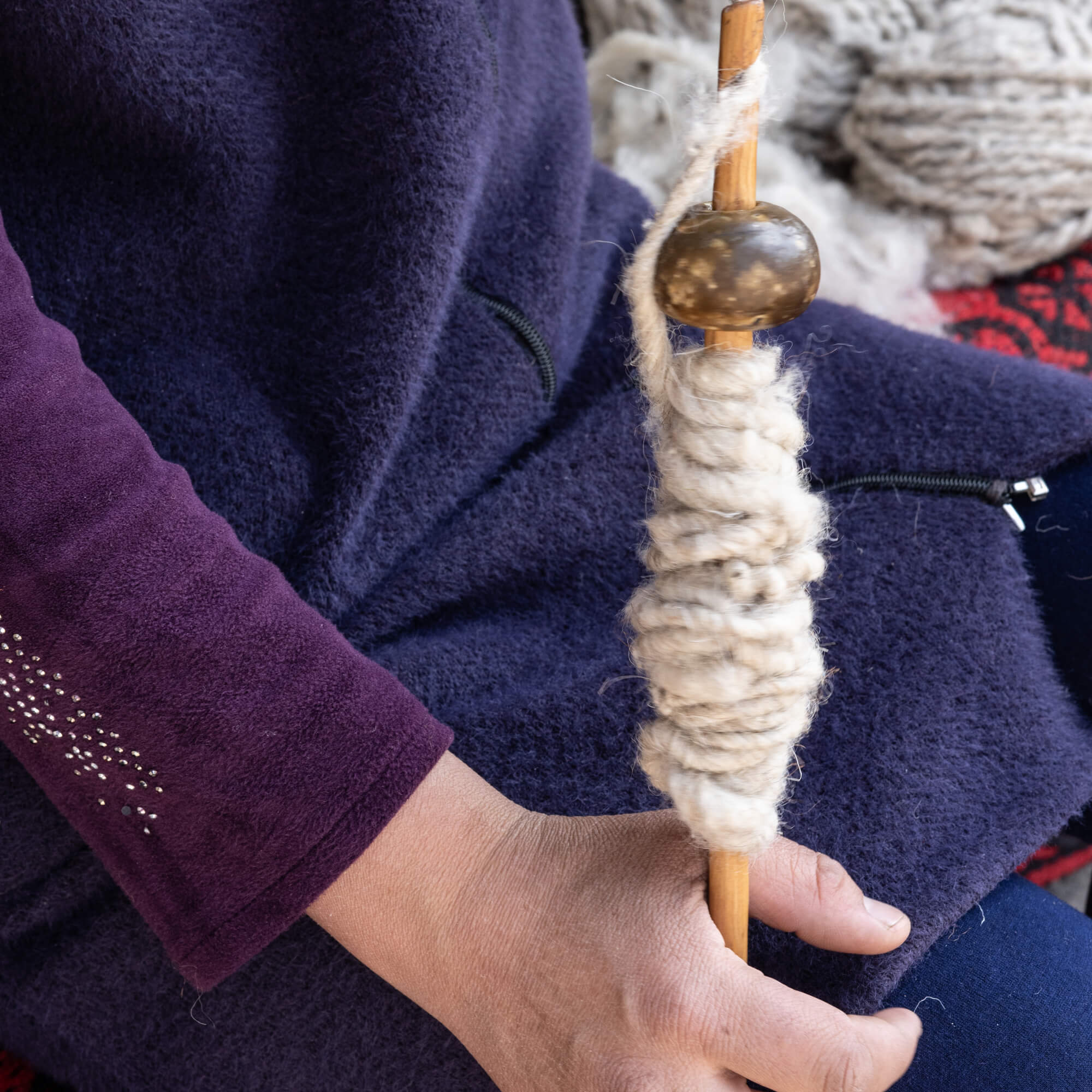
Handspun Wool
Sourced from small-scale farms in Kyrgyzstan, our wool is carefully handspun, preserving its natural strength and softness without the need for excessive processing. This traditional method supports local artisans and reduces the environmental impact associated with industrial wool production. By weaving the fibers on small looms, we ensure minimal waste while maintaining the wool’s breathability, warmth, and durability.
Found In:
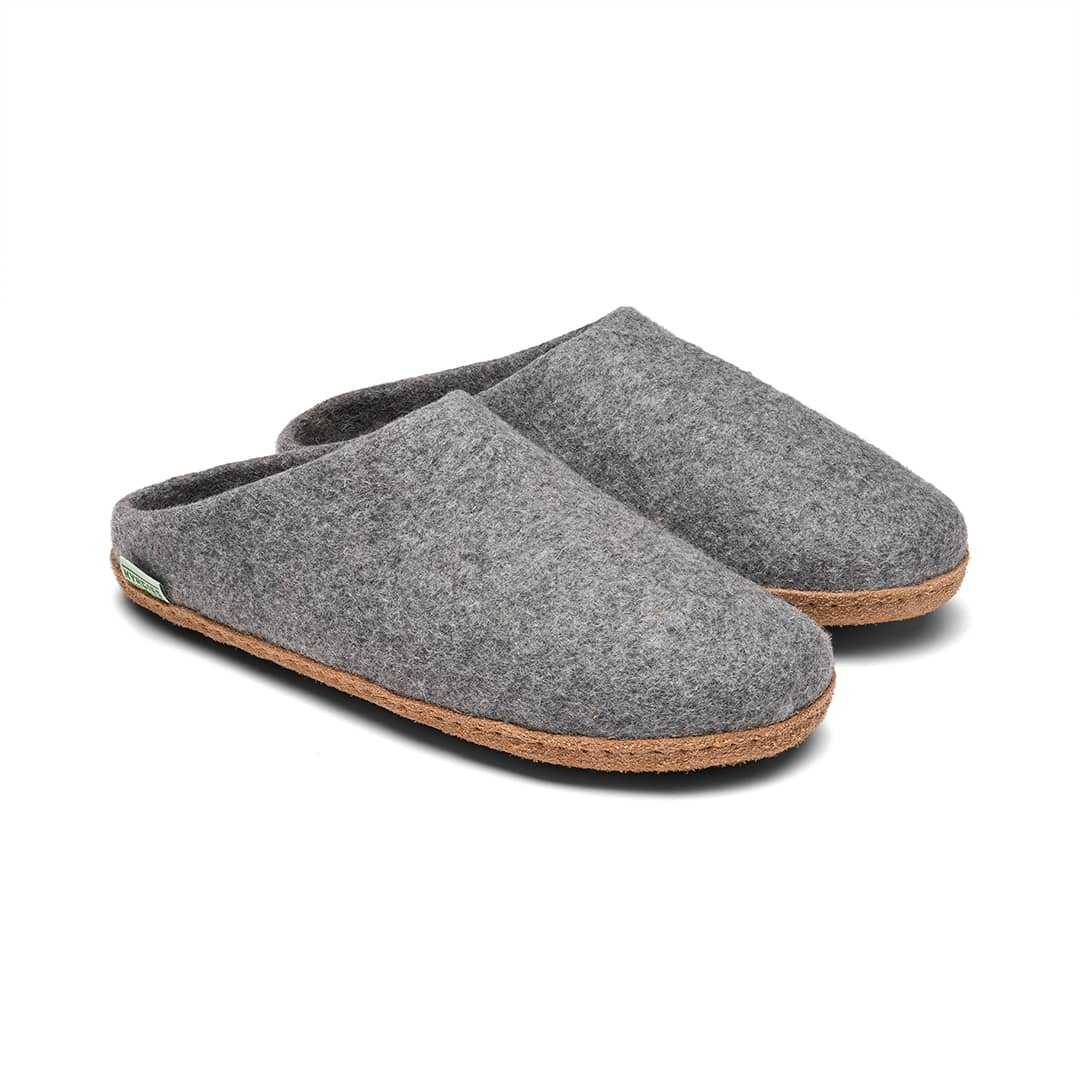
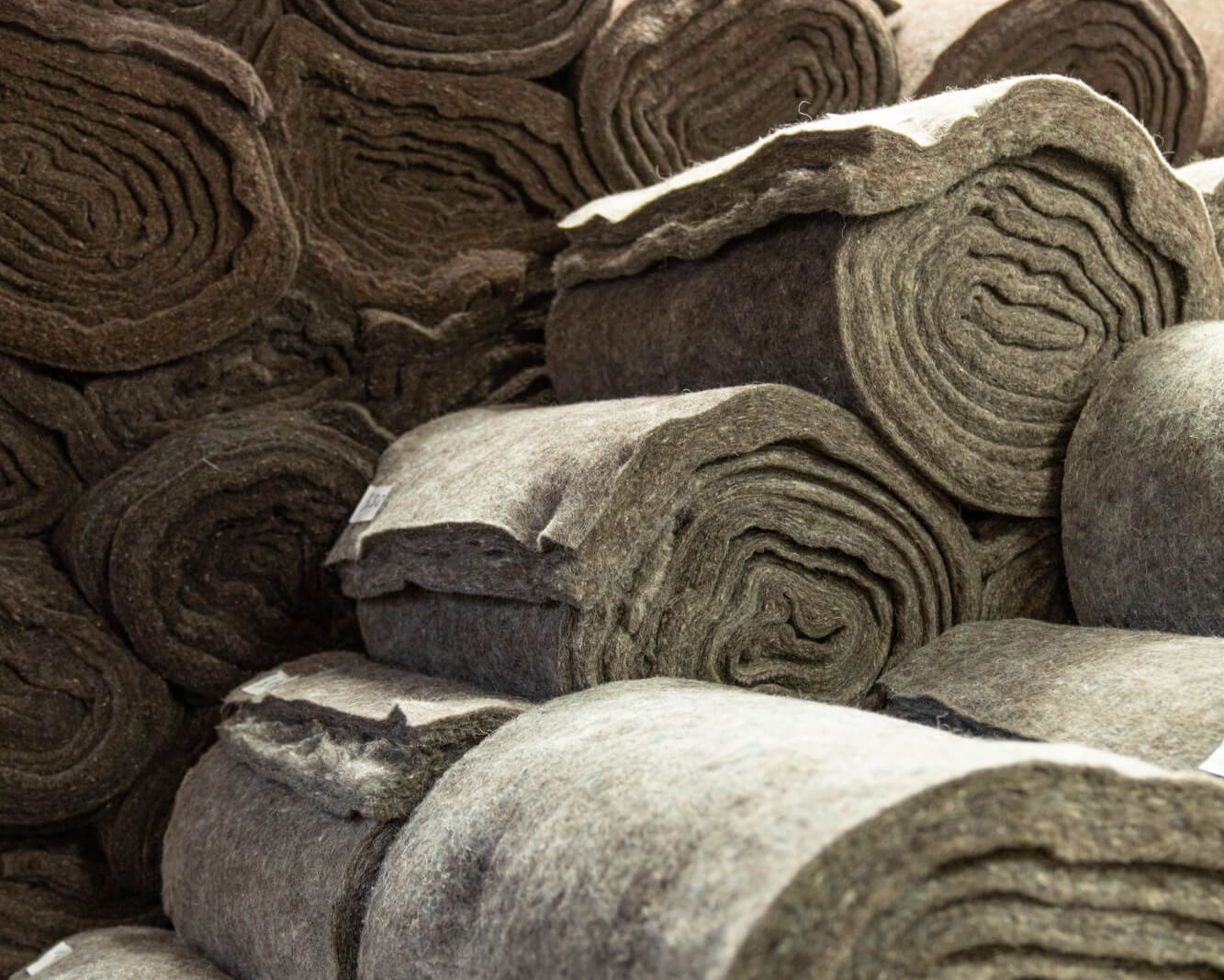
Rolled Felt
Our felt is made using a time-honored rolling technique that compresses handspun wool fibers into a dense, durable fabric without synthetic binders or chemicals. This process enhances insulation and longevity while keeping the material fully biodegradable. By choosing natural rolled felt, we reduce reliance on synthetic alternatives and create a sustainable material that remains warm, breathable, and long-lasting.
Found In:
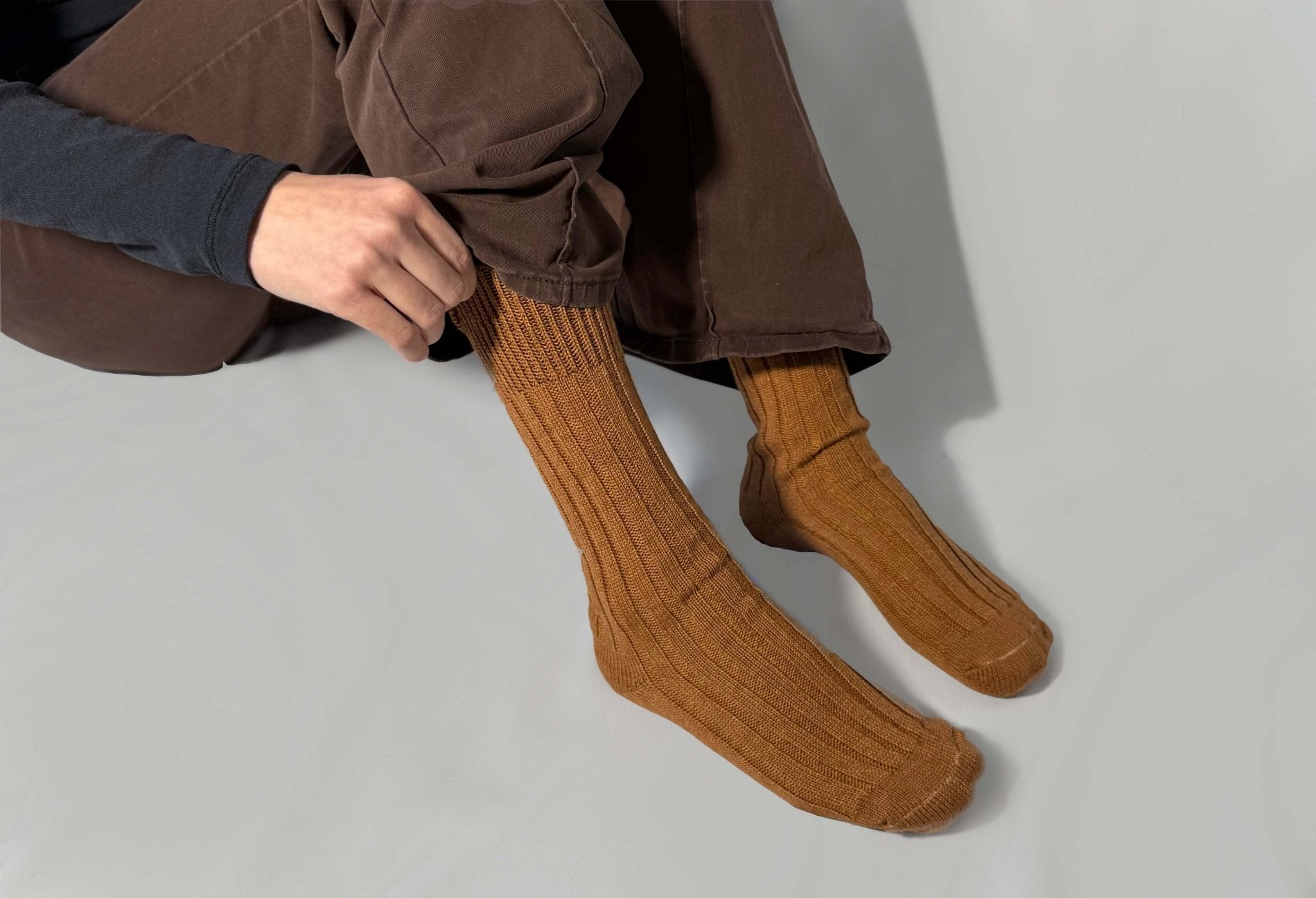
Cotton
Our socks use Climate Beneficial™ cotton, which is grown using regenerative farming practices that improve soil health and capture carbon from the atmosphere. Cotton is naturally breathable, lightweight, and soft, making it ideal for everyday comfort. As a biodegradable and renewable fiber, it reduces reliance on synthetic materials and supports a healthier planet. For wearers, this means socks that feel soft against the skin, provide excellent airflow to prevent overheating, and remain comfortable throughout the day.
Found In:
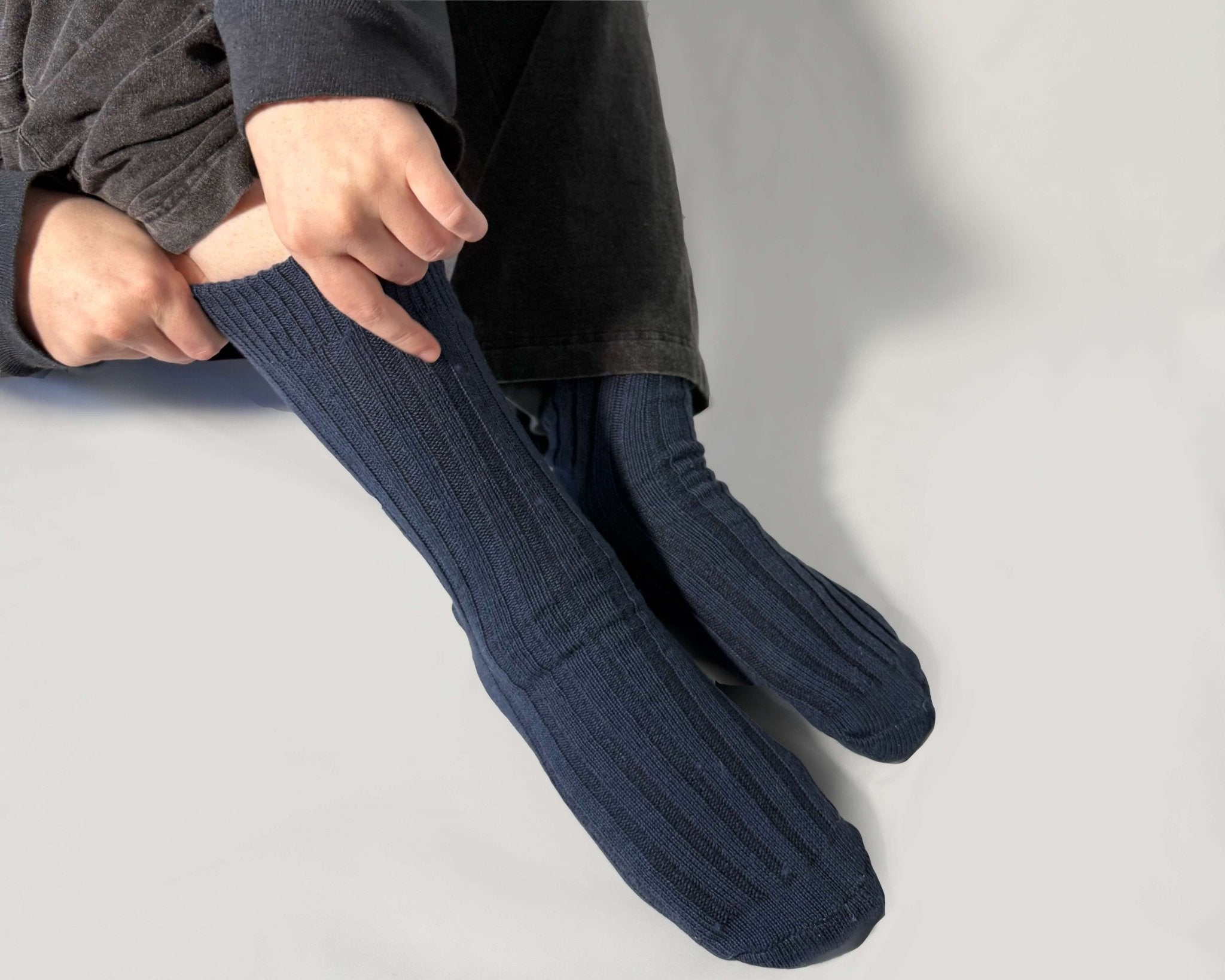
Alpaca Wool
Our alpaca wool is Climate Beneficial™, sourced from farms that use regenerative grazing practices to restore ecosystems and increase soil’s ability to absorb carbon. Alpacas have a low environmental impact—they graze gently without uprooting plants, require minimal water, and their fleece regenerates naturally each year. This wool is ultra-soft, moisture-wicking, and naturally odor-resistant, meaning our socks stay fresher for longer, reducing the need for frequent washing and conserving water. For wearers, alpaca wool offers lightweight warmth without bulk, keeping feet dry and cozy in all seasons while preventing odor buildup for all-day freshness.
Found In:
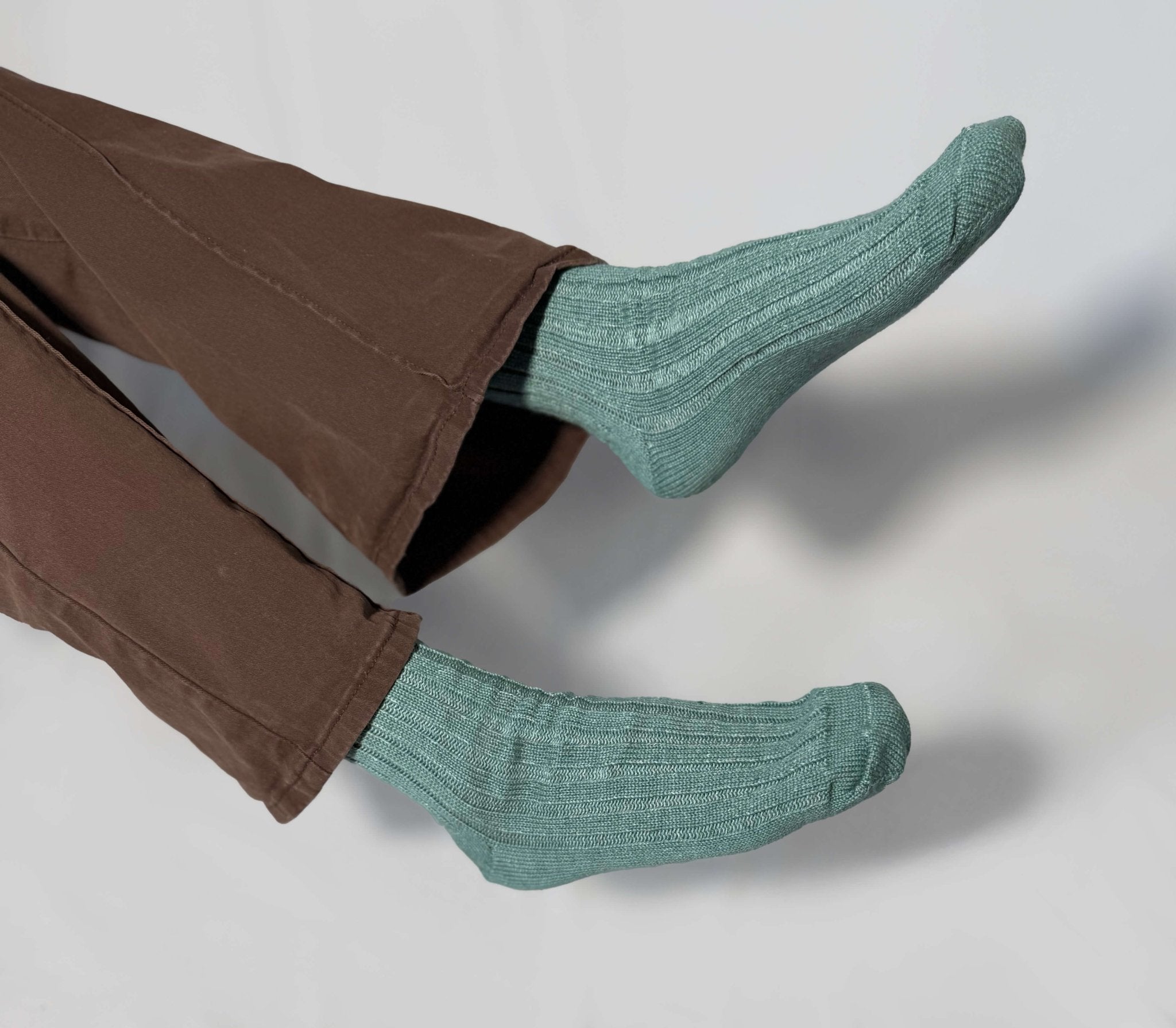
Wool
Our socks also incorporate Climate Beneficial™ Rambouillet wool, which provides warmth, elasticity, and durability. This wool is sourced from farms practicing regenerative agriculture, which helps rebuild soil health, sequester carbon, and promote biodiversity. Wool is a naturally insulating and temperature-regulating fiber, keeping feet warm in cold weather and cool in heat. It is also biodegradable and long-lasting, reducing waste and ensuring a sustainable alternative to synthetic fibers. For wearers, this means socks that mold comfortably to the foot, maintain their shape over time, and provide a snug yet breathable fit for lasting comfort and support.
Found In:
Learn More About Kyrgies
The Making of Kyrgies Wovens
Learn about the traditional weaving and centuries-old wool felting techniques local Kyrgyzstan women use to create our soft and cozy Wovens.
Sustainability
Our sustainable wool slippers and house shoes are ethically made, eco-conscious, rooted in tradition, and handcrafted from Kyrgyz wool and leather.
